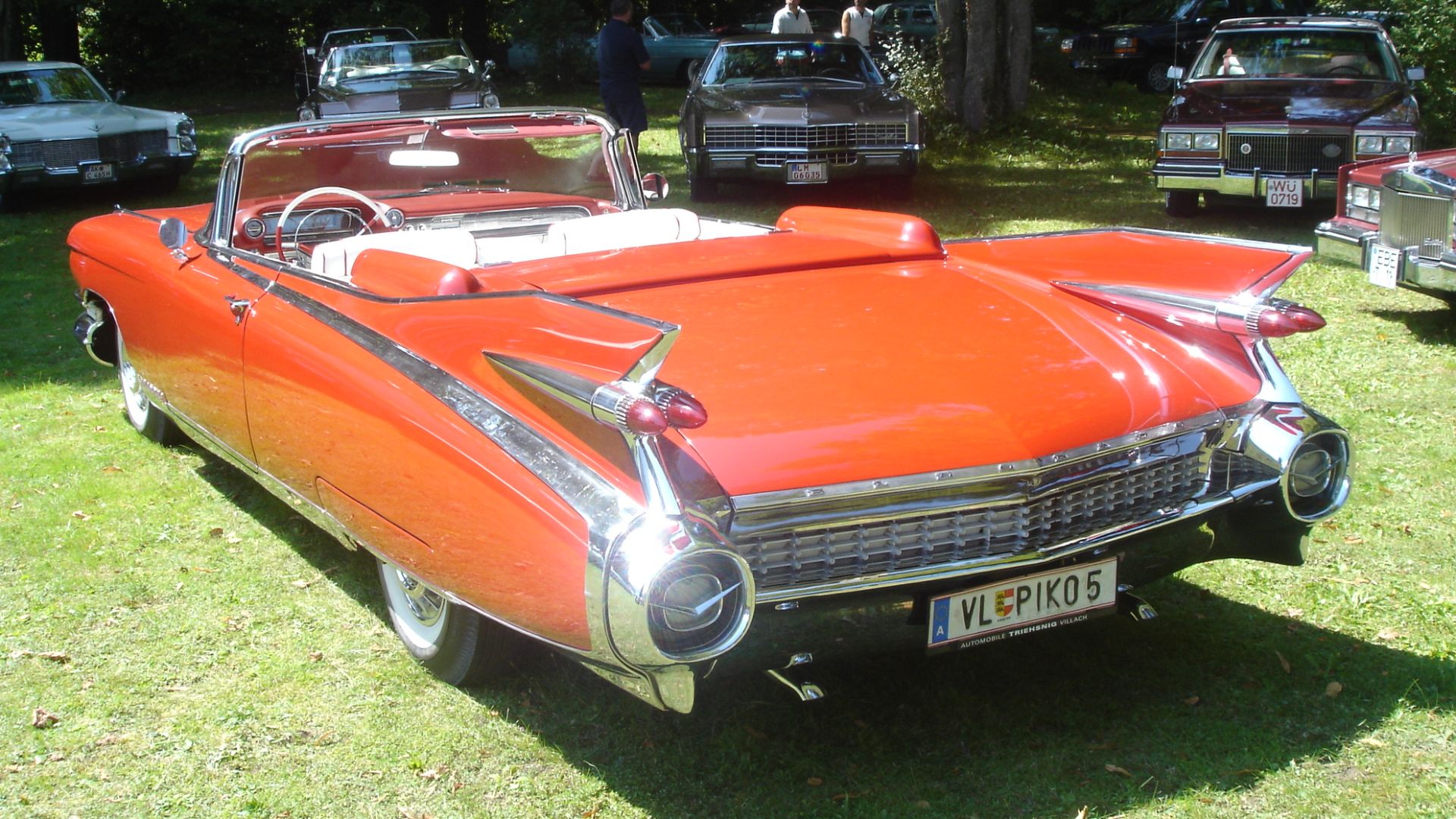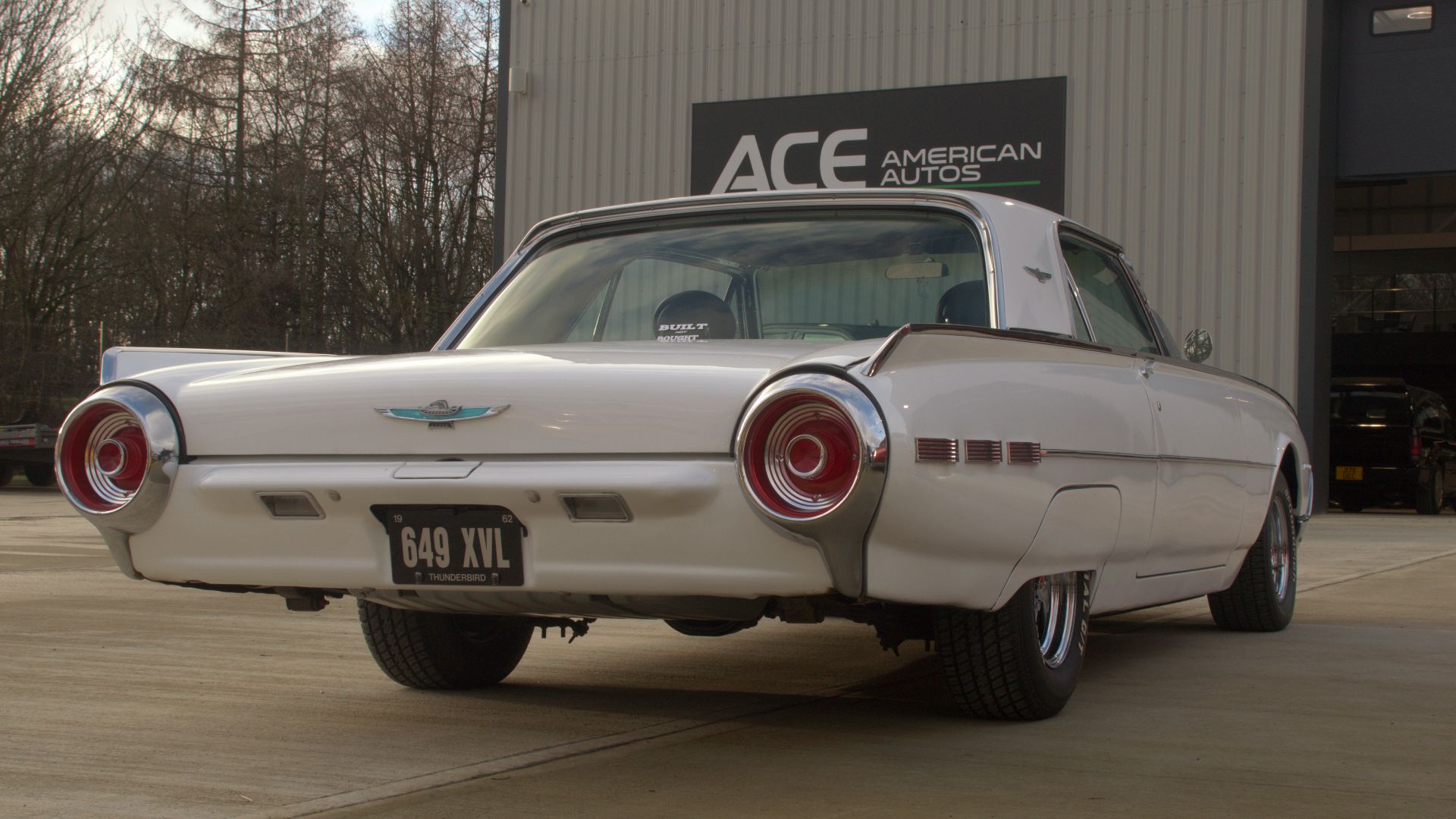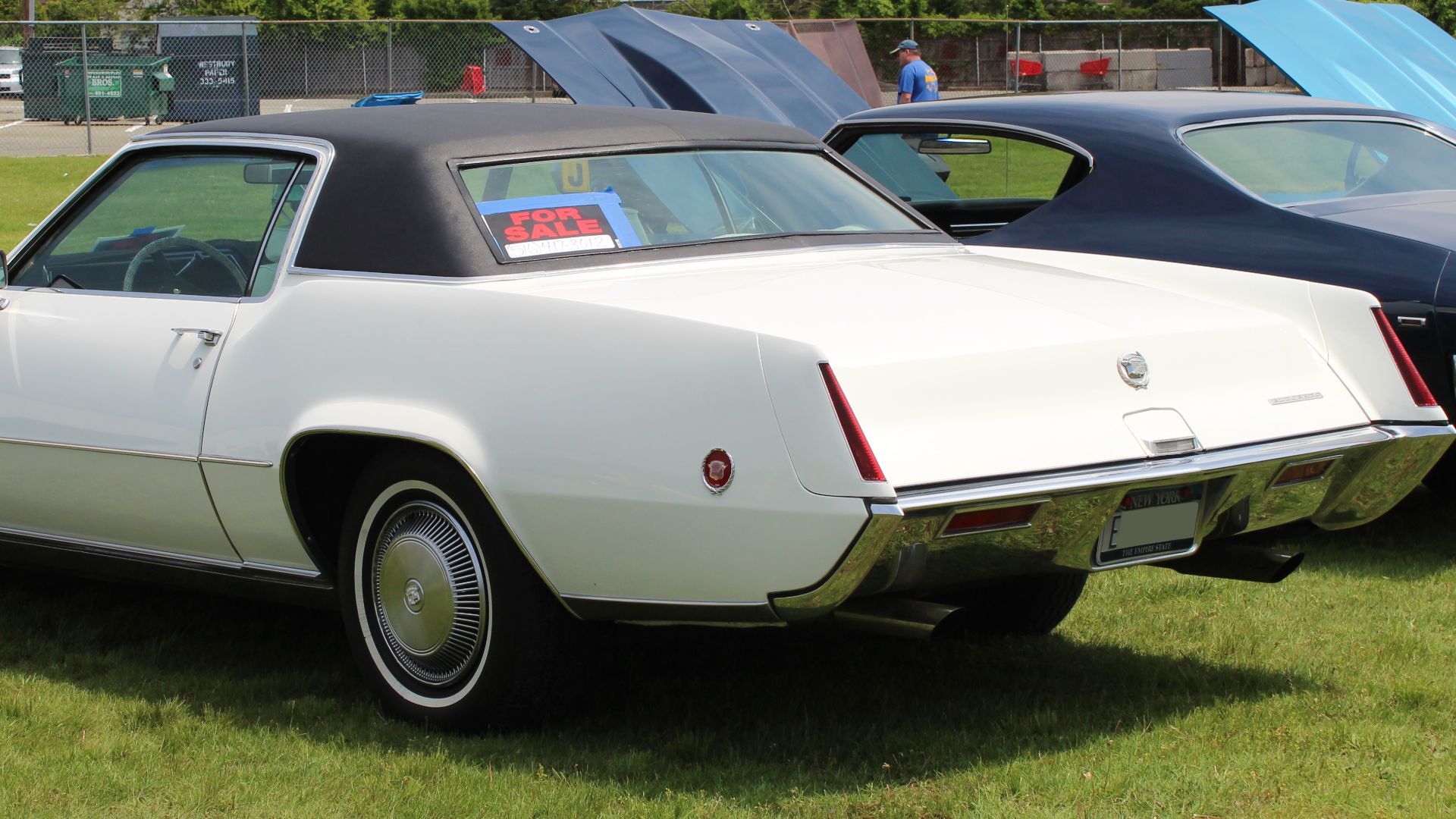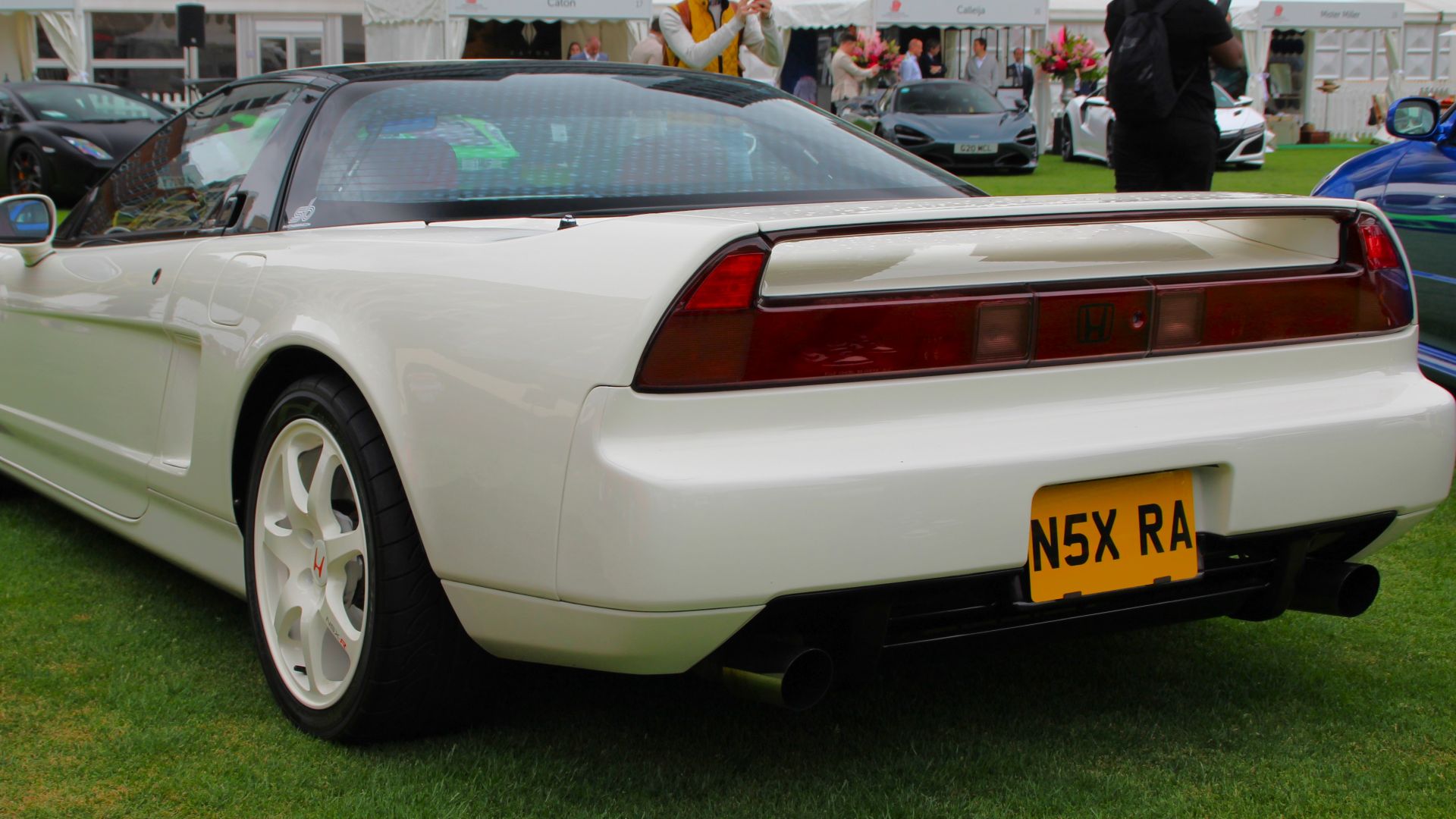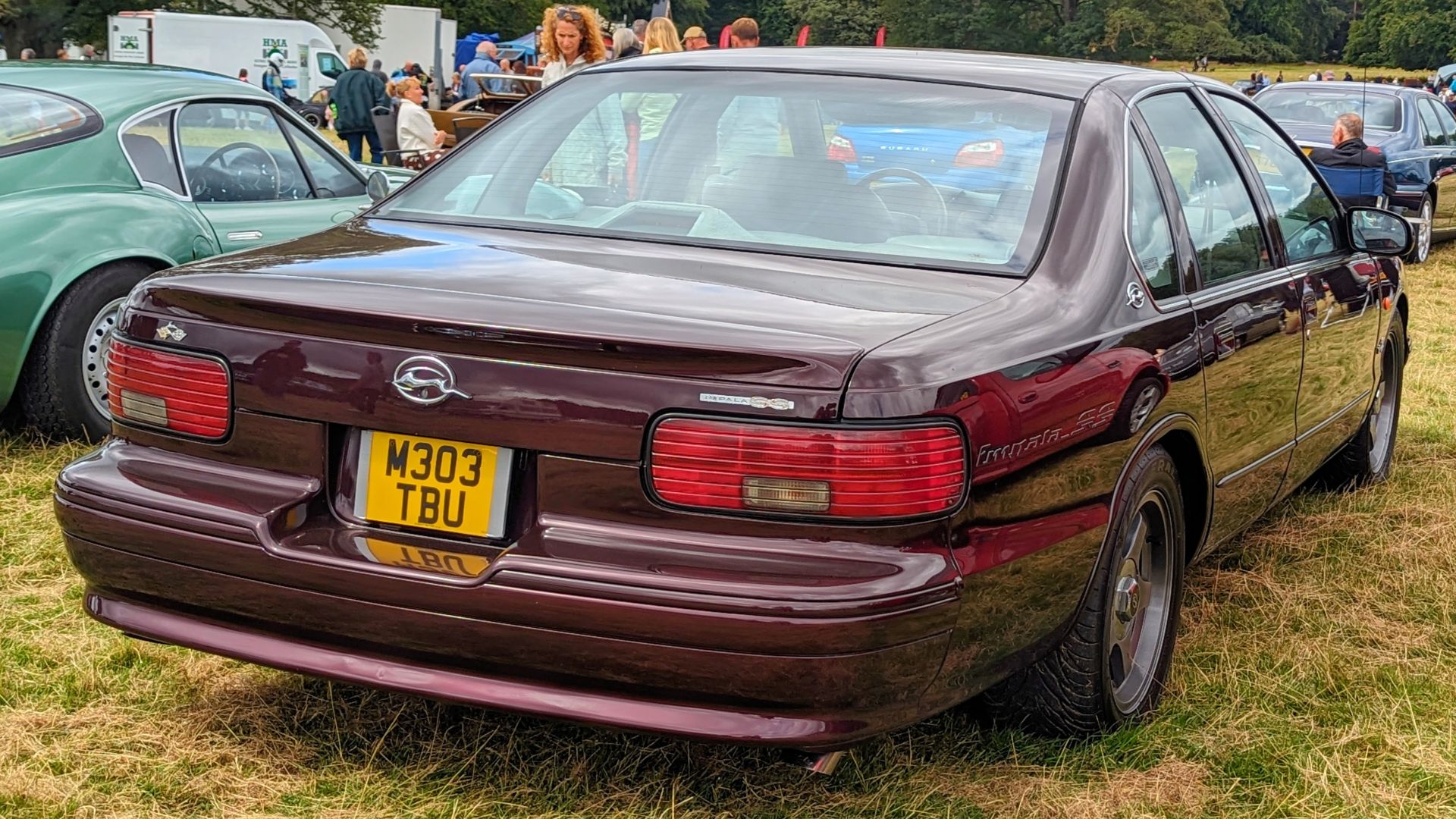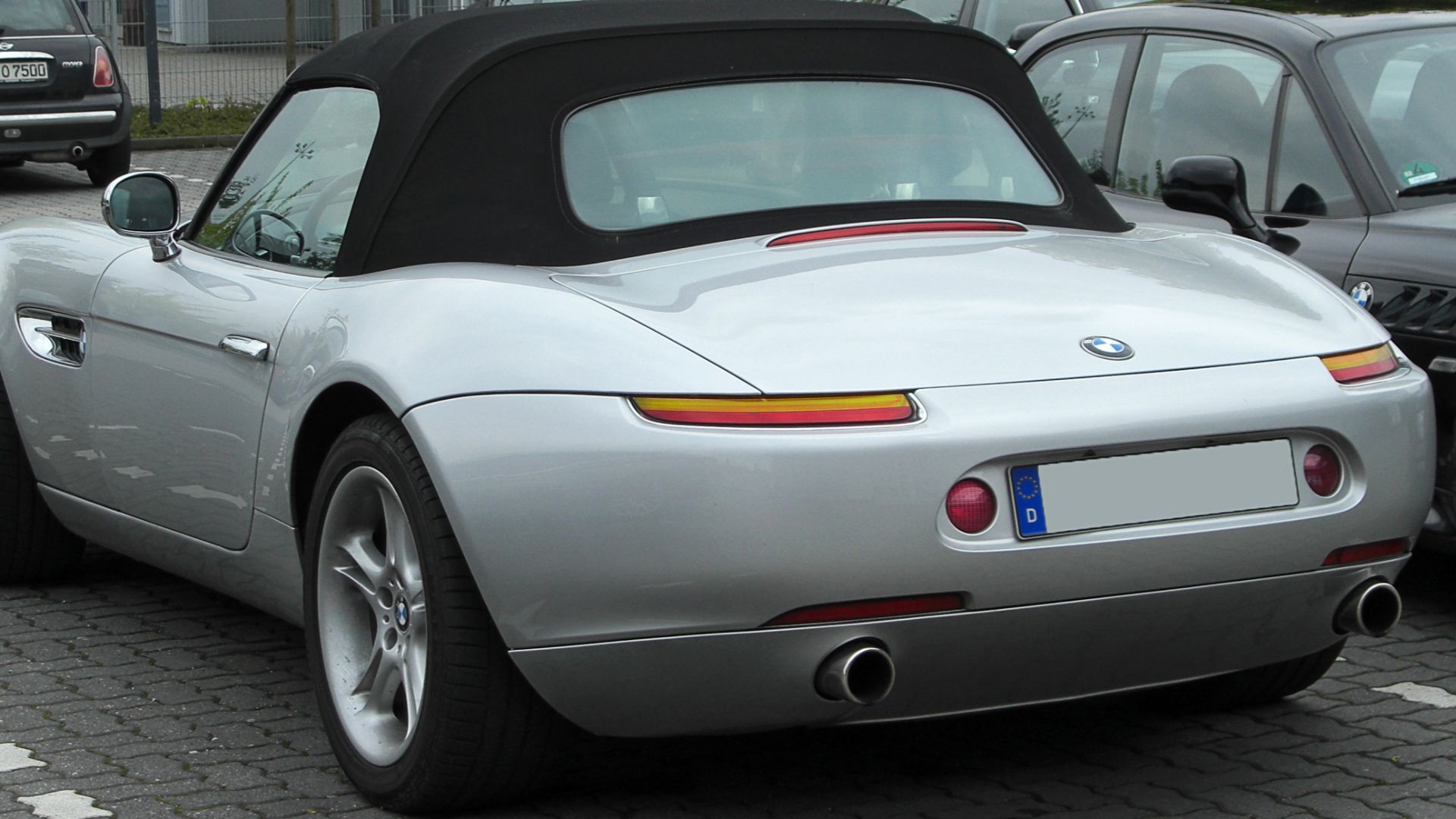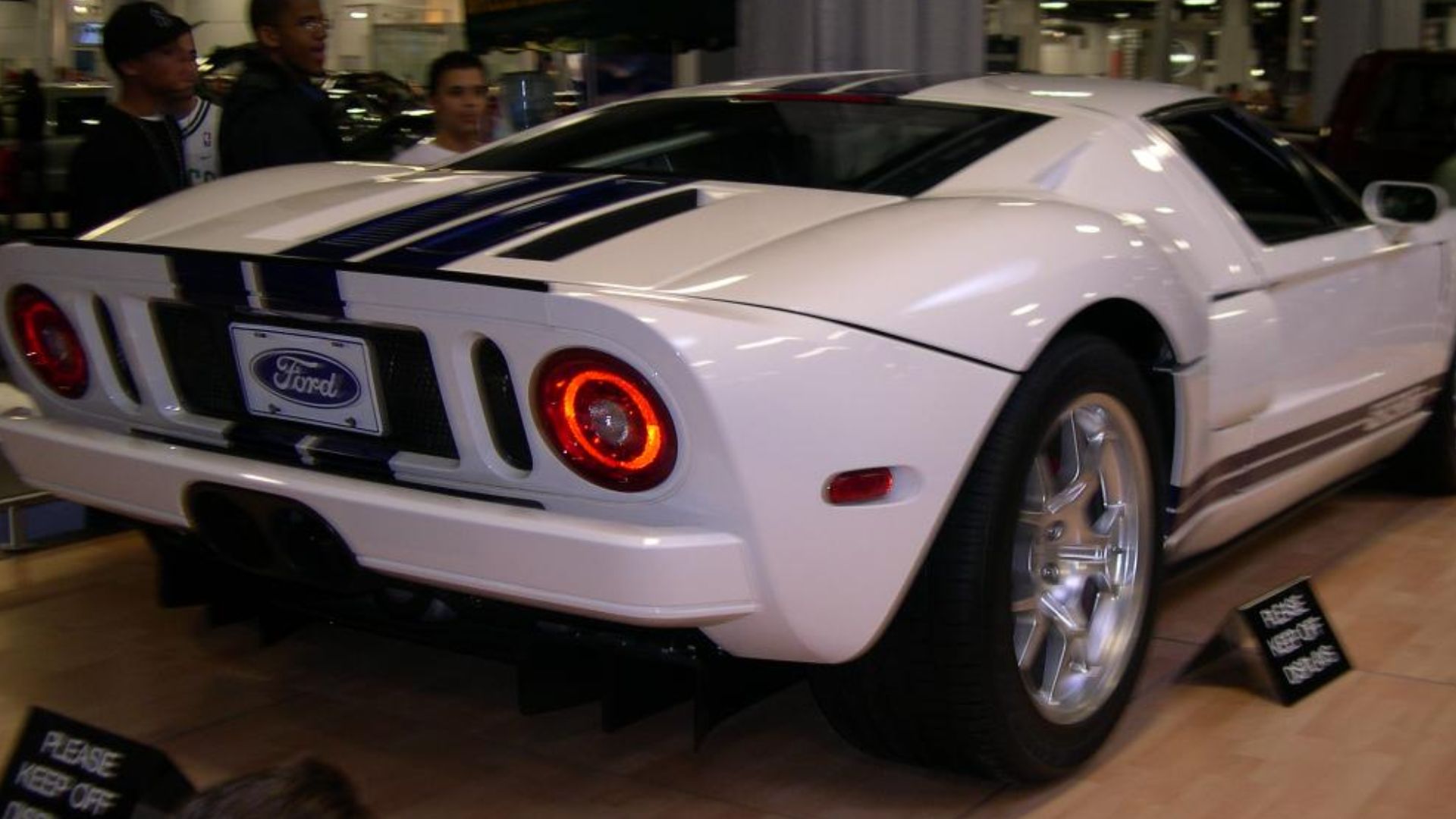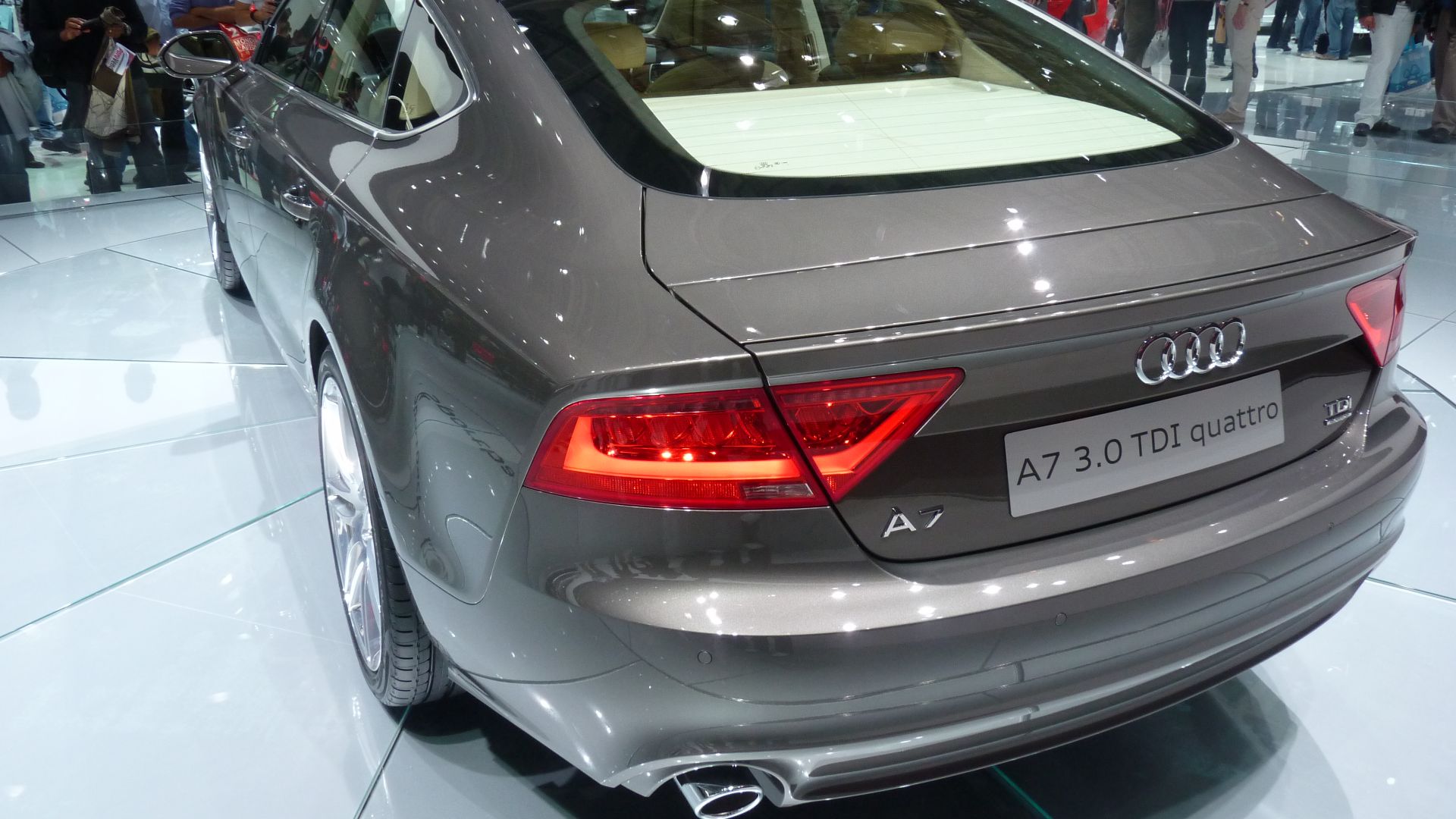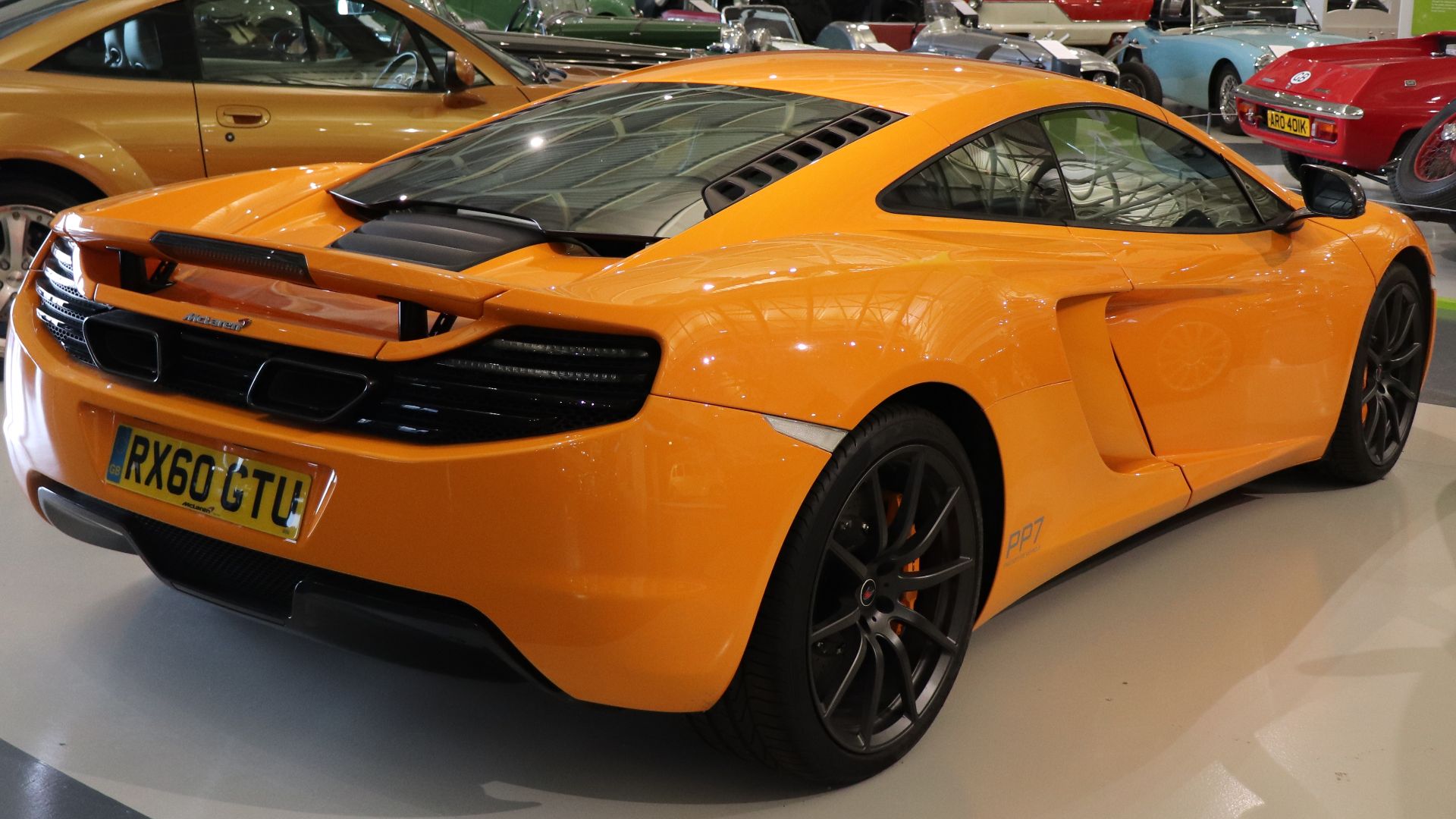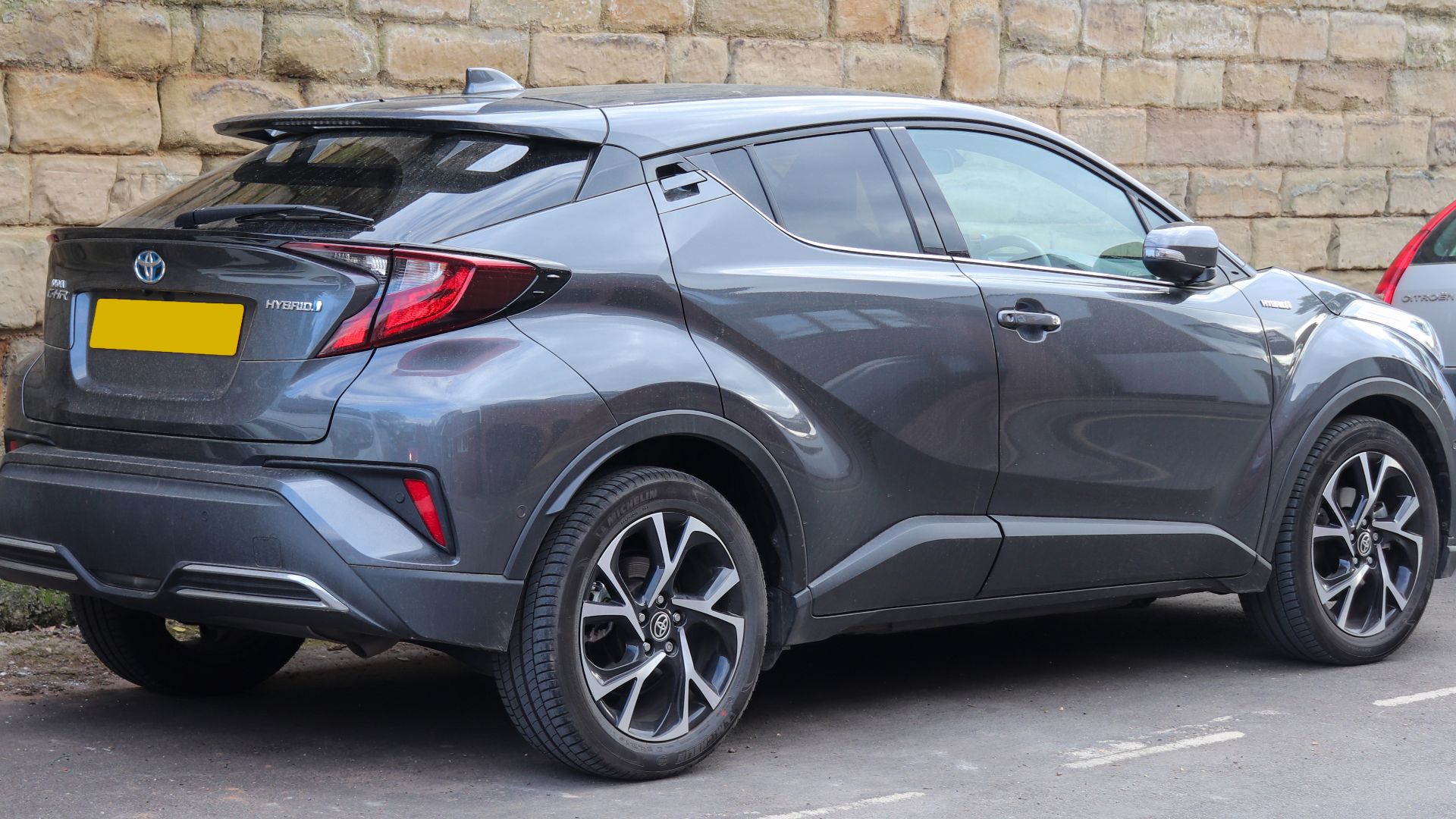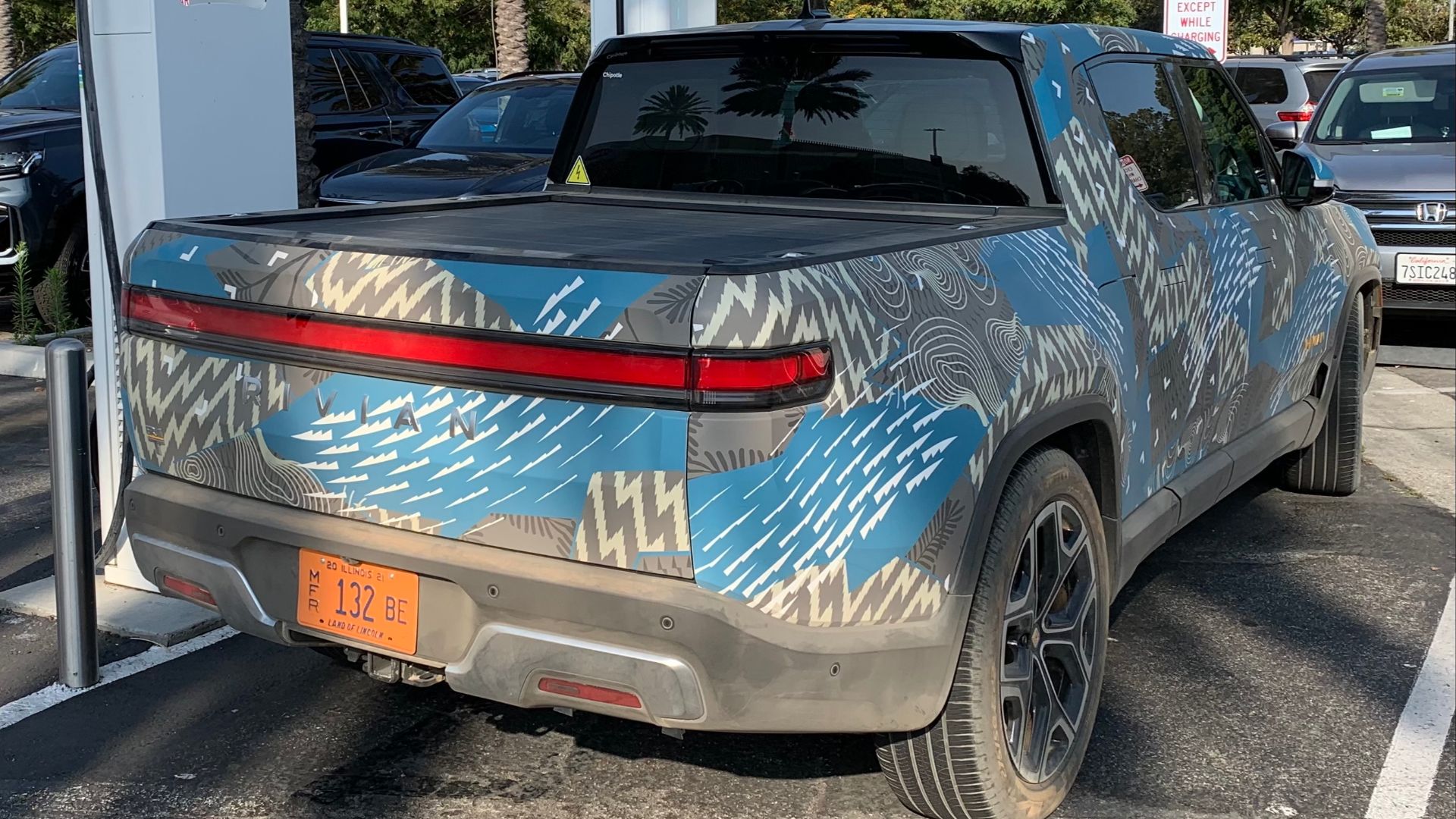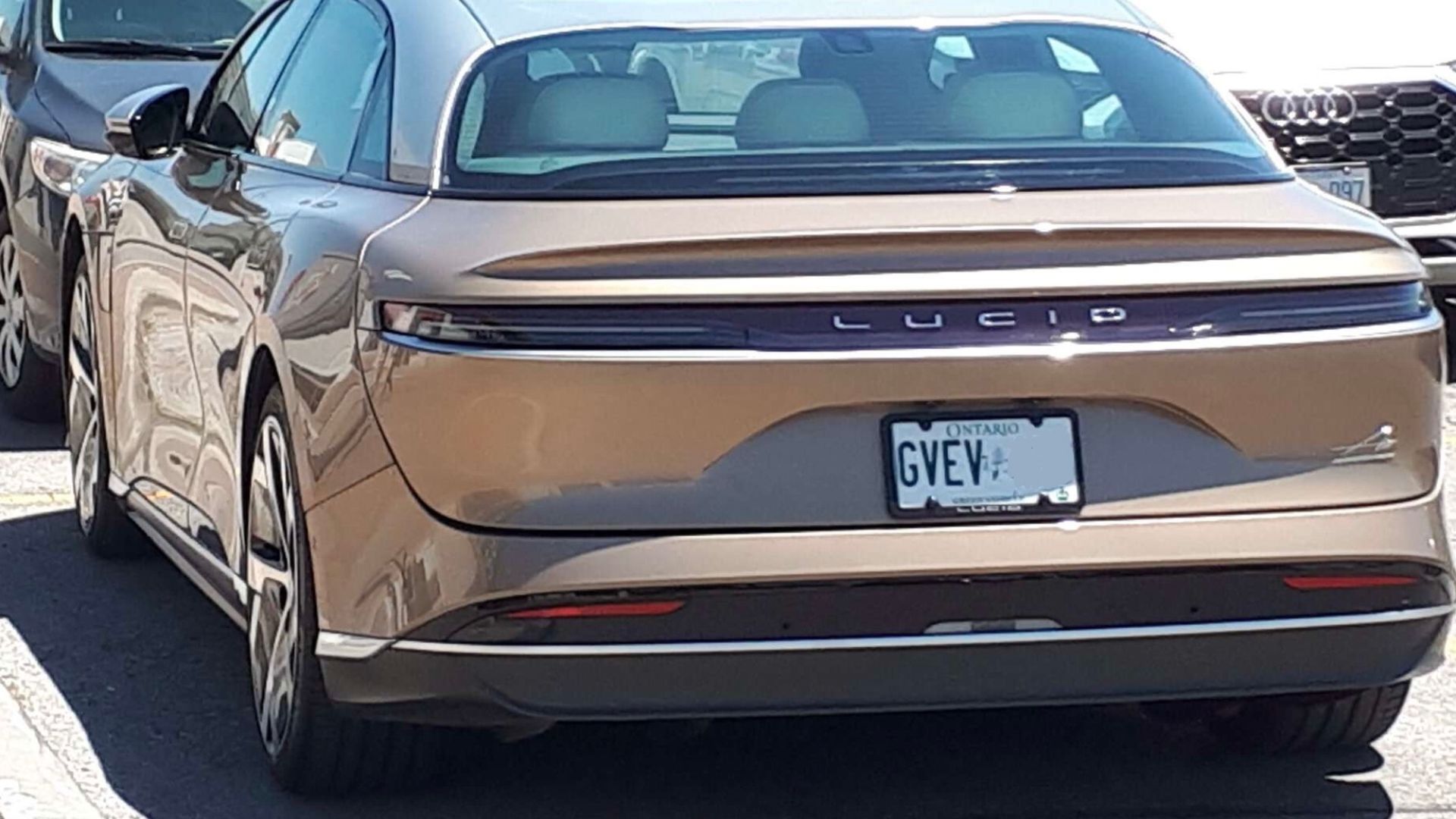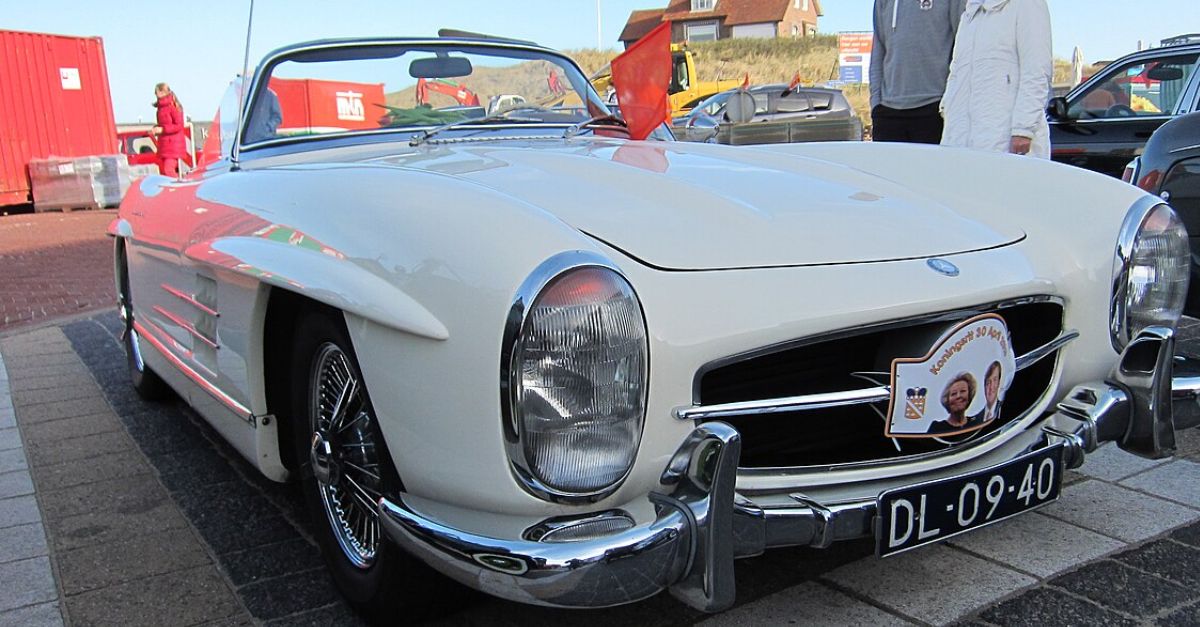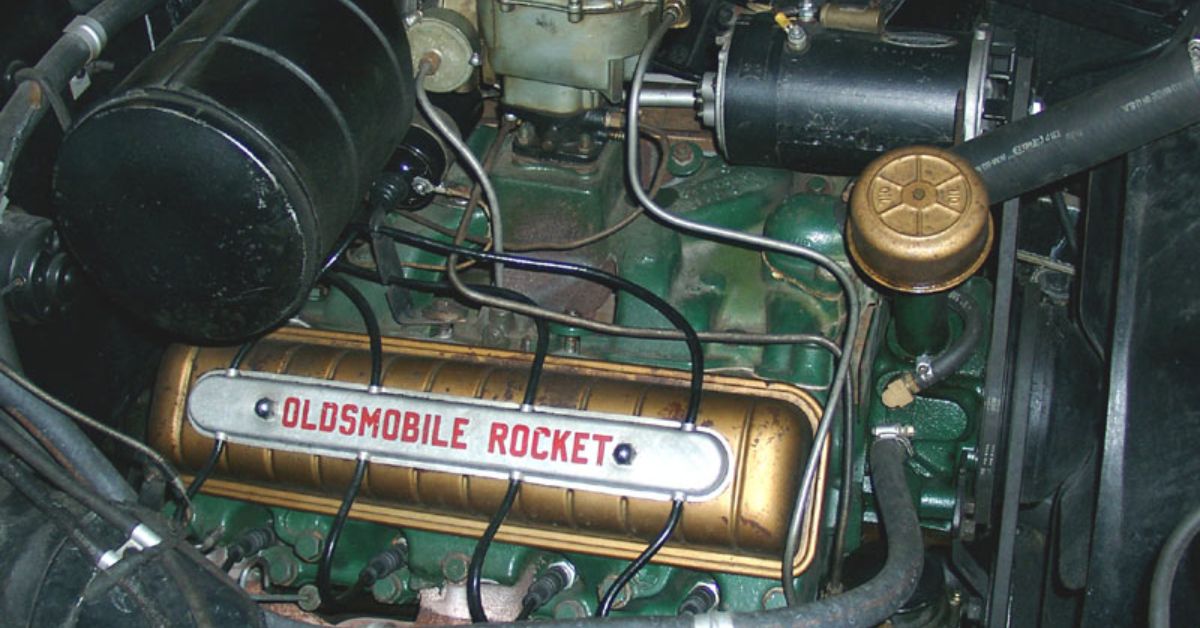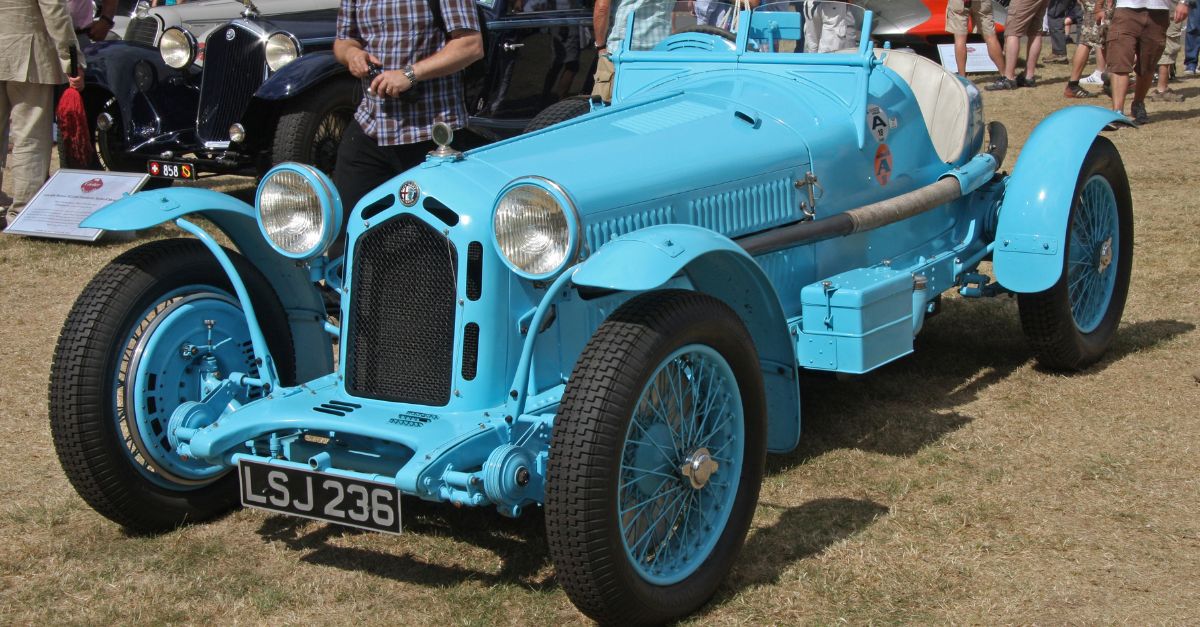Behind The Curve
Car designers have to get it right from front to back. The front might draw you in, sure, but the back? That’s what people who honk behind you actually see.
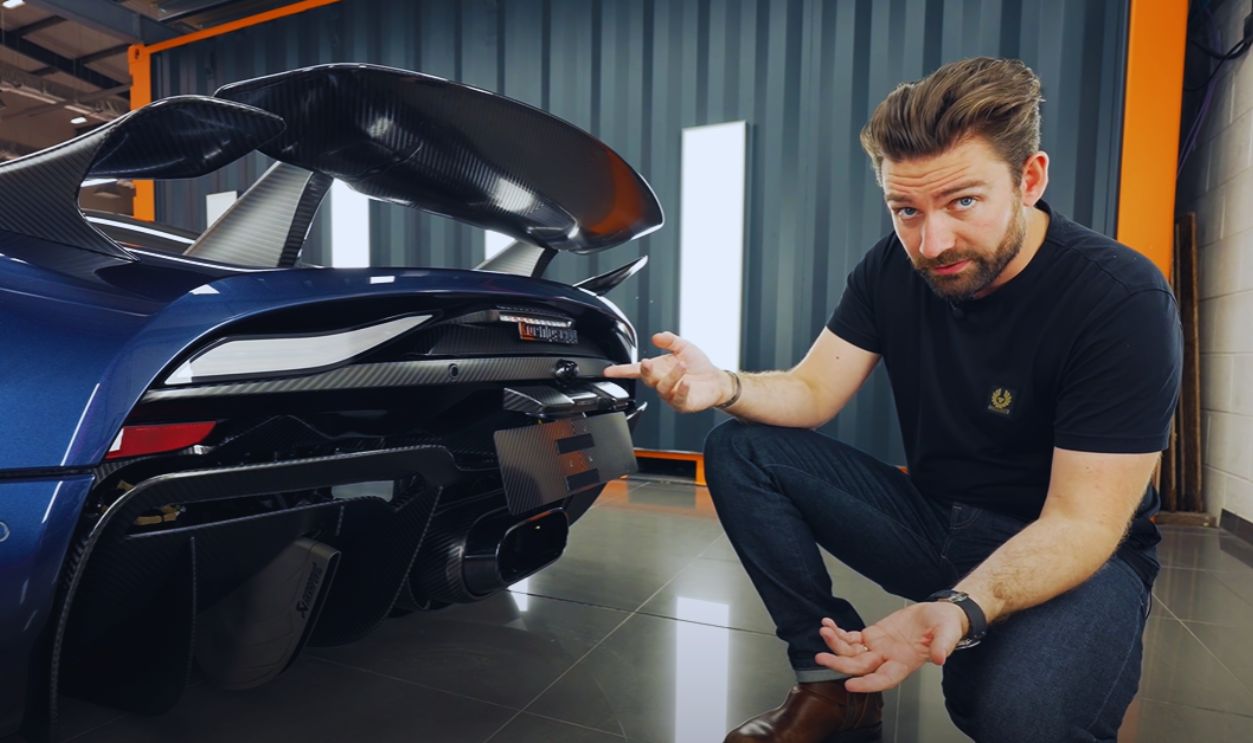
1934 Voisin C-25 Aerodyne
This French marvel embraced aviation-inspired styling, featuring lightweight aluminum bodywork that echoed Voisin’s origins in aircraft design. The rear end was engineered for aerodynamic efficiency—an uncommon approach in luxury automobiles of the 1930s—showcasing the marque’s unique blend of technological innovation and stylistic ambition.
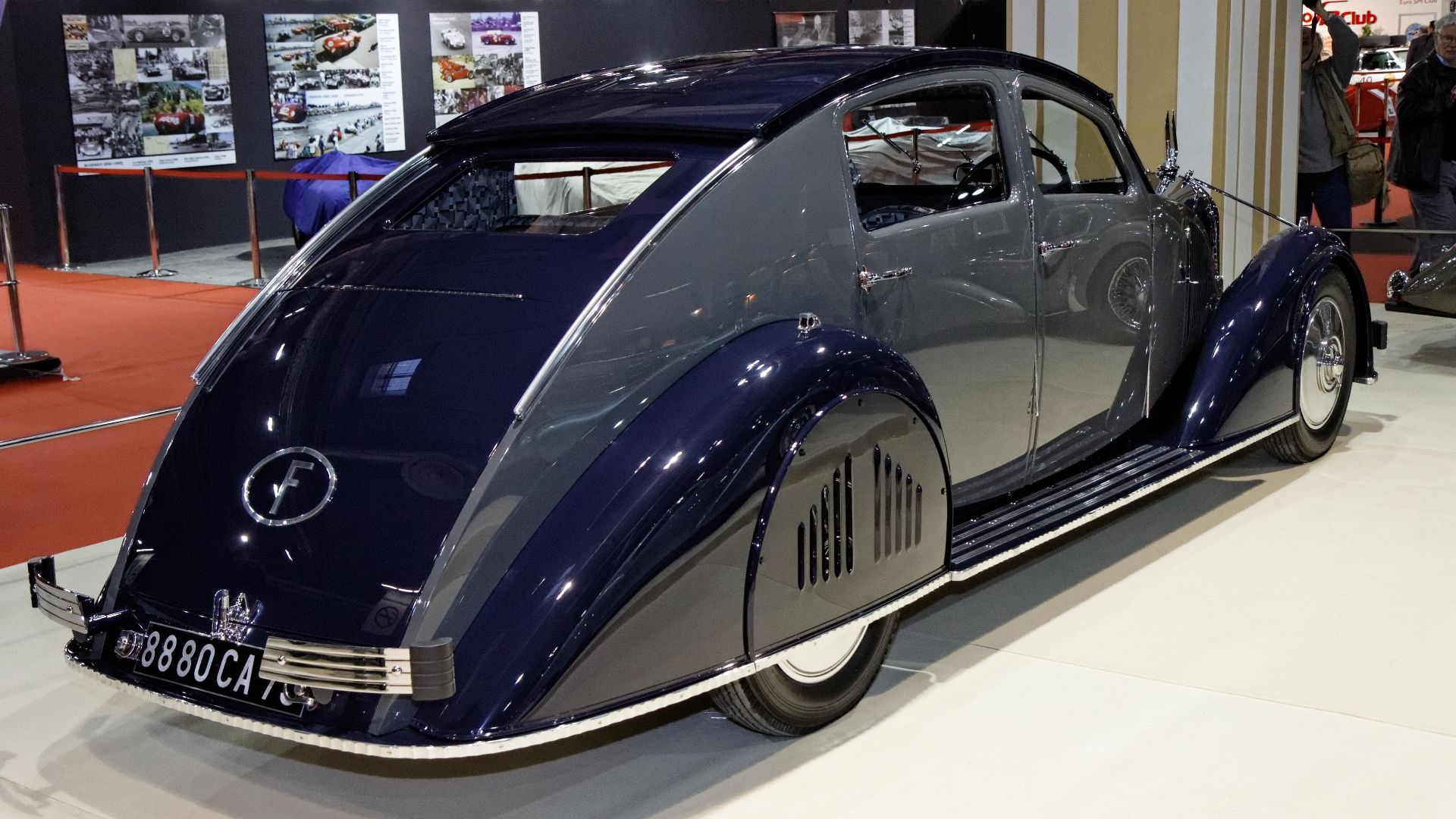 Thesupermat, Wikimedia Commons
Thesupermat, Wikimedia Commons
1935 Auburn 851 Speedster
Zooming out of Indiana, the Auburn 851 Speedster’s elongated rear tapered into a rounded boattail, capped with twin chrome-encased taillights. These weren’t just lights; they were visual bookmarks that wrapped up their racing DNA. Auburn even fitted a recessed license plate between them, accentuating symmetry.
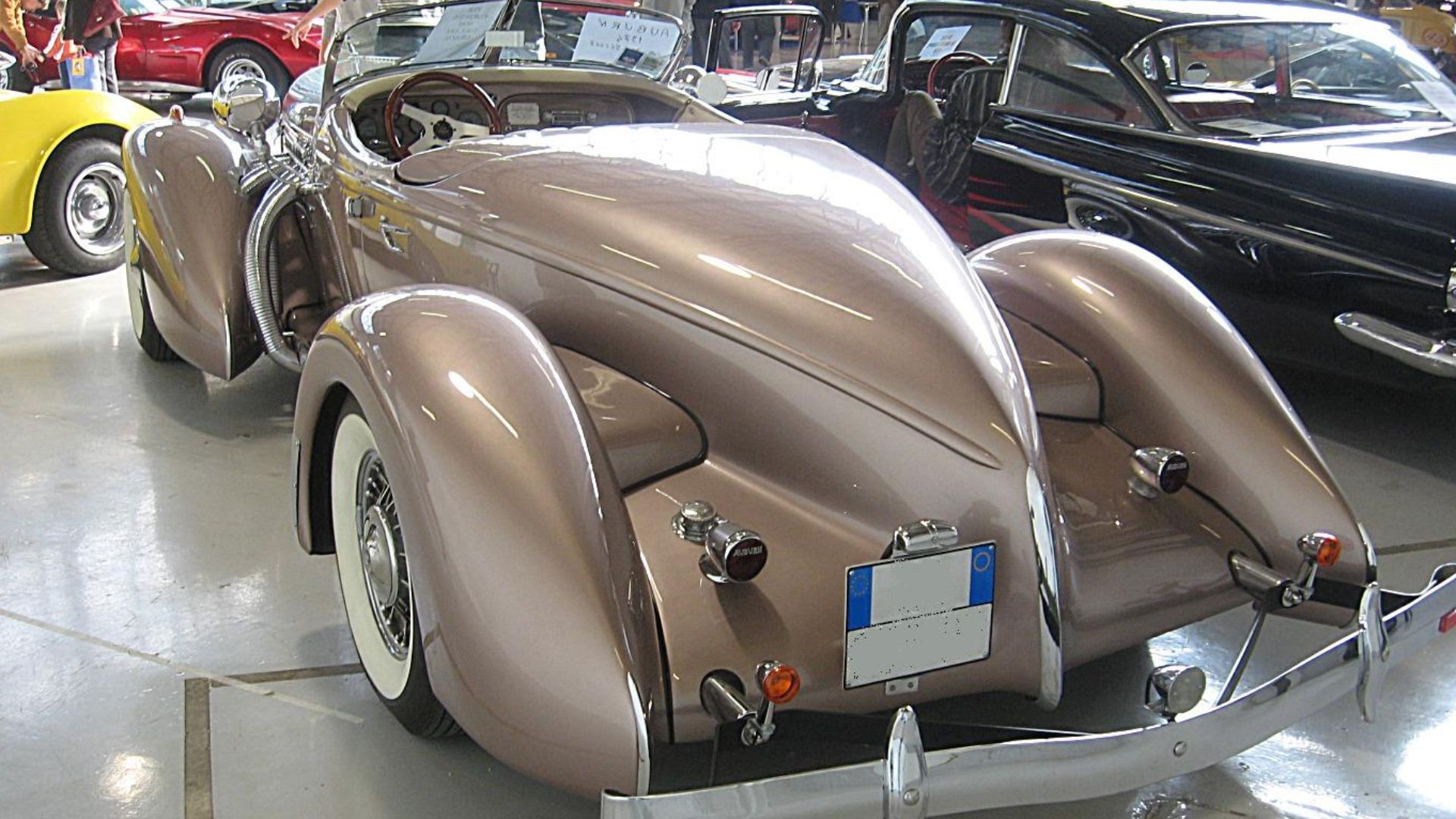 No machine-readable author provided. Luc106 assumed (based on copyright claims)., Wikimedia Commons
No machine-readable author provided. Luc106 assumed (based on copyright claims)., Wikimedia Commons
1948 Cadillac Series 62
Tailfins started here. That’s right, the 1948 Cadillac Series 62 launched an entire design movement. With vertical fins inspired by the P-38 Lightning fighter plane, Cadillac turned its taillights into sculptural statements. Their sleek vertical housings set the tone for American car design in the 50s.
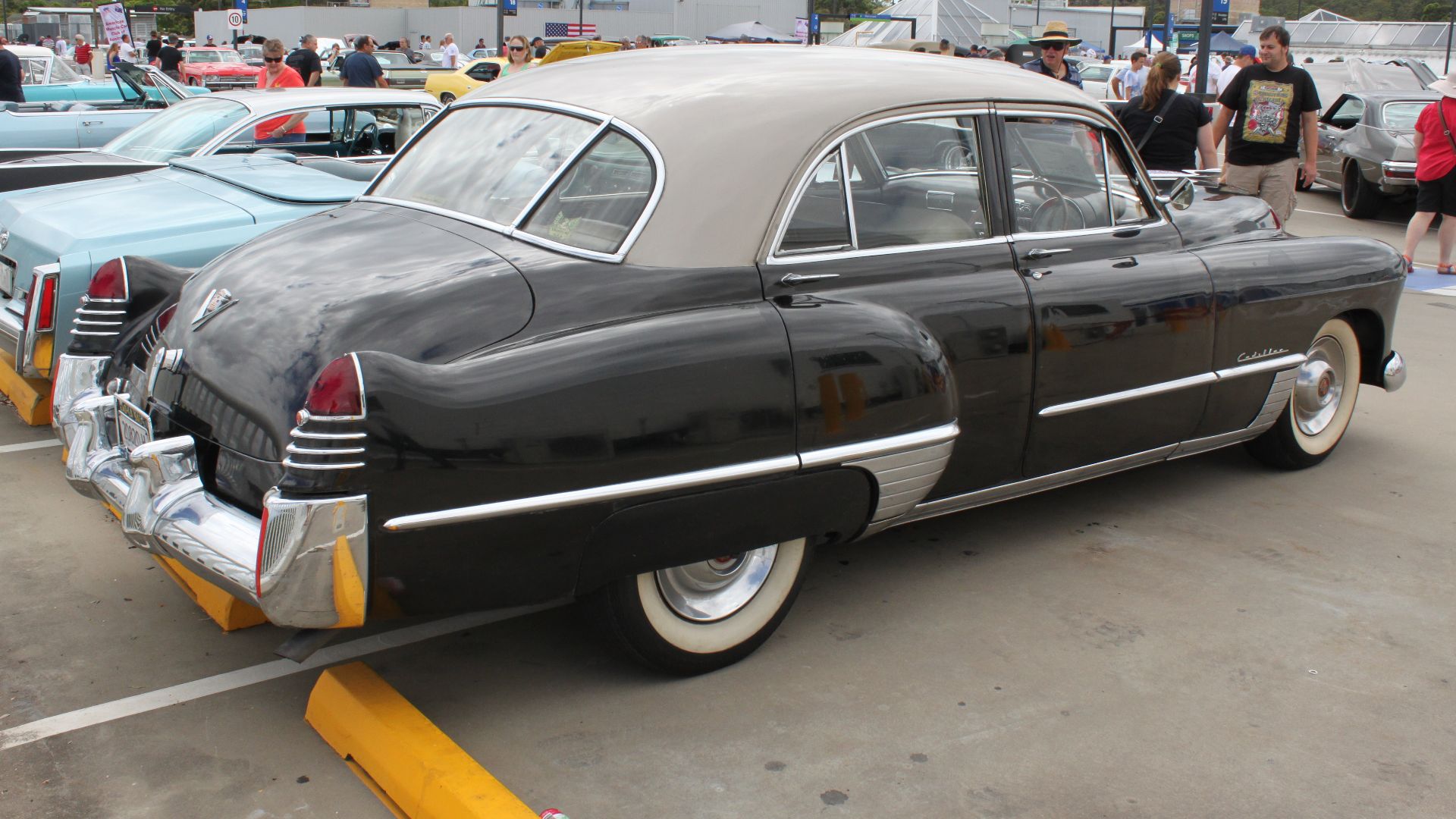 Jeremy from Sydney, Australia, Wikimedia Commons
Jeremy from Sydney, Australia, Wikimedia Commons
1953 Chevrolet Corvette C1
Riding on optimism and fiberglass dreams, the 1953 Corvette C1 debuted as America’s sports car—and its taillights made sure you knew it. Rounded like vintage rockets, they perched above a bubble-back rear deck, giving the vehicle an almost space-age lift.
1958 Edsel Station Wagon
Quirky? Definitely. Underappreciated? Absolutely. The 1958 Edsel Wagon sported V-shaped boomerang taillights angled inwards, wildly against convention. What were designers thinking? Rebellion, perhaps. They crafted lights that even state troopers found confusing, mistaking turn signals for brake lights. But that risk carved Edsel into car culture forever.
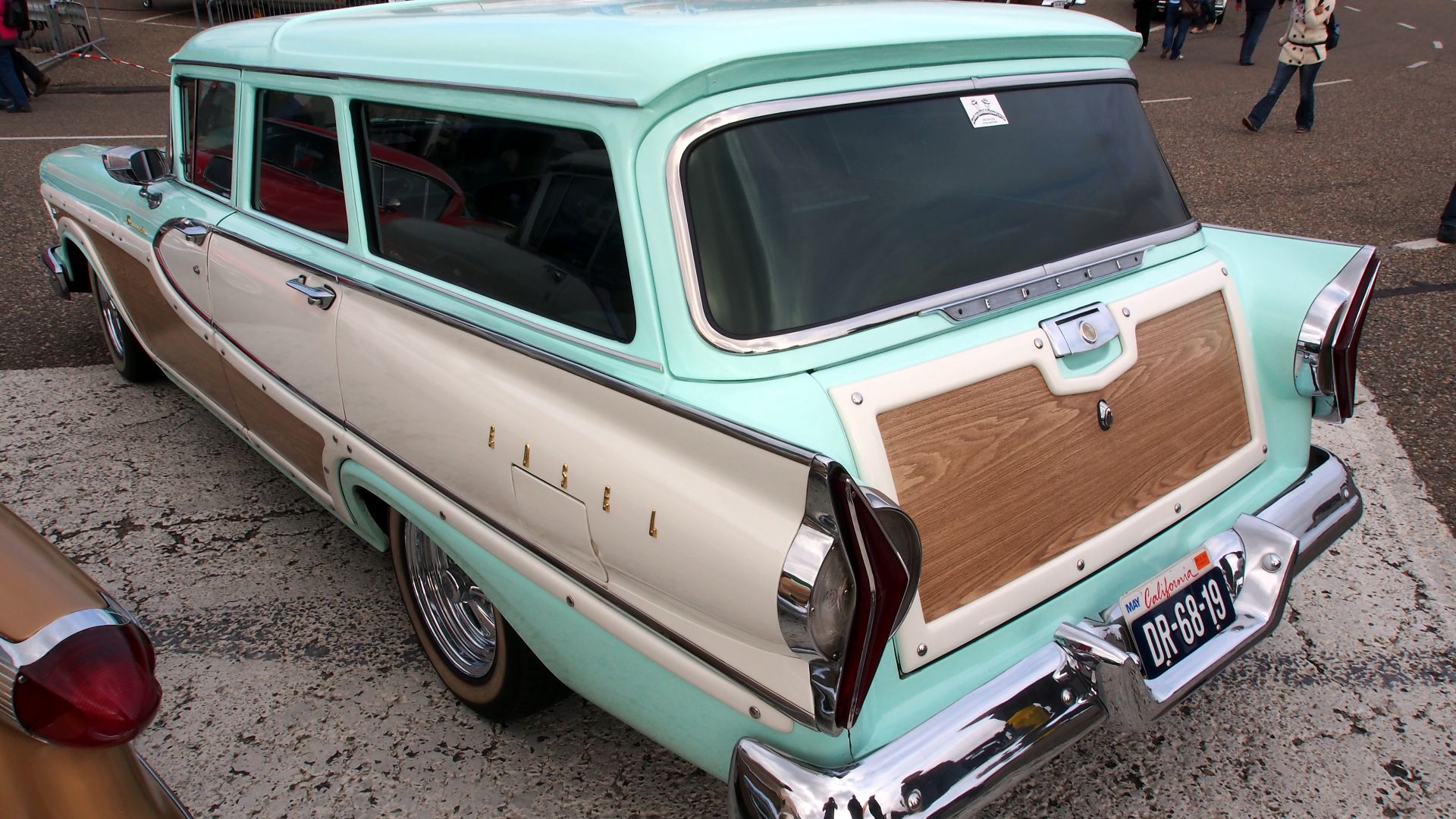 Alf van Beem, Wikimedia Commons
Alf van Beem, Wikimedia Commons
1959 Cadillac Eldorado
With sharp, towering fins, Cadillac crowned them with twin rocket-styled taillights that evoked a spaceship aesthetic. Designers paired function with drama, wrapping vivid red domes in chrome bezels that caught the sunlight from every angle—bold styling that defined the brand’s futuristic ambitions.
1960 Dodge Matador
Jet-age madness reached its crescendo in the 1960 Dodge Matador. Here, you got jet pods molded like exhaust nozzles on a rocket. Dodge’s ad men called it “forward look styling,” and honestly, they weren’t exaggerating. The rear end housed recessed round lights in vertical chrome shrouds.
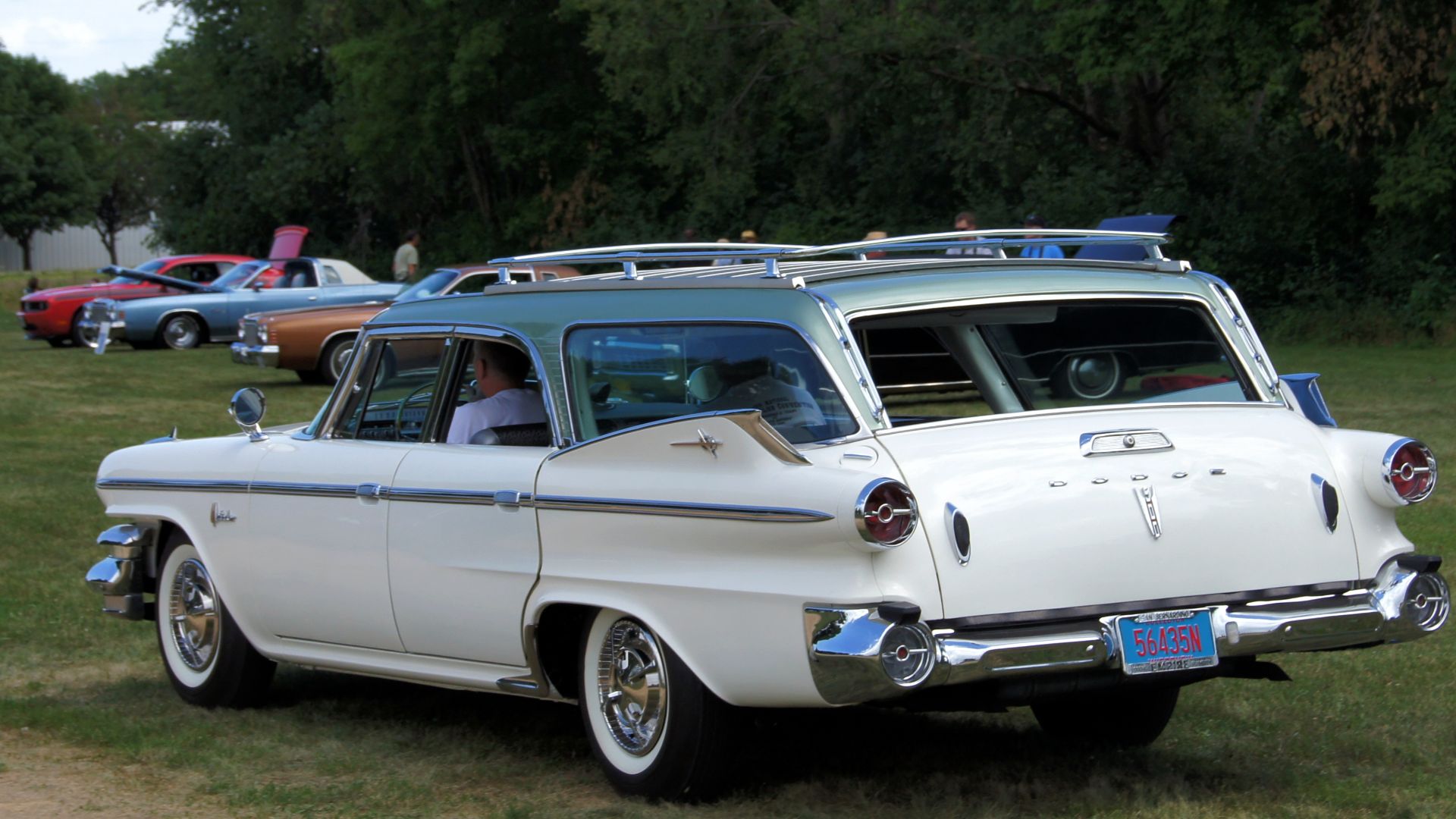 Greg Gjerdingen from Willmar, USA, Wikimedia Commons
Greg Gjerdingen from Willmar, USA, Wikimedia Commons
1962 Ford Thunderbird
Style met swagger in the 1962 Thunderbird. Its rear taillights were sculpted exhausts that mimicked jet propulsion. Flanked by sculpted metal bezels, the taillights gave off a smoky aura even when idle. Ford engineers cleverly framed the lighting clusters within recessed ovals, adding a layer of depth.
1963 Chevrolet Corvette Sting Ray
Split in more ways than one, the 1963 Sting Ray literally split its rear window. But the real gem? Dual round taillights sitting low beneath sharply creased rear fenders. Simple, yes, but profoundly effective. They reinforced the aggressive haunches of the car and echoed the round gauges inside the cockpit.
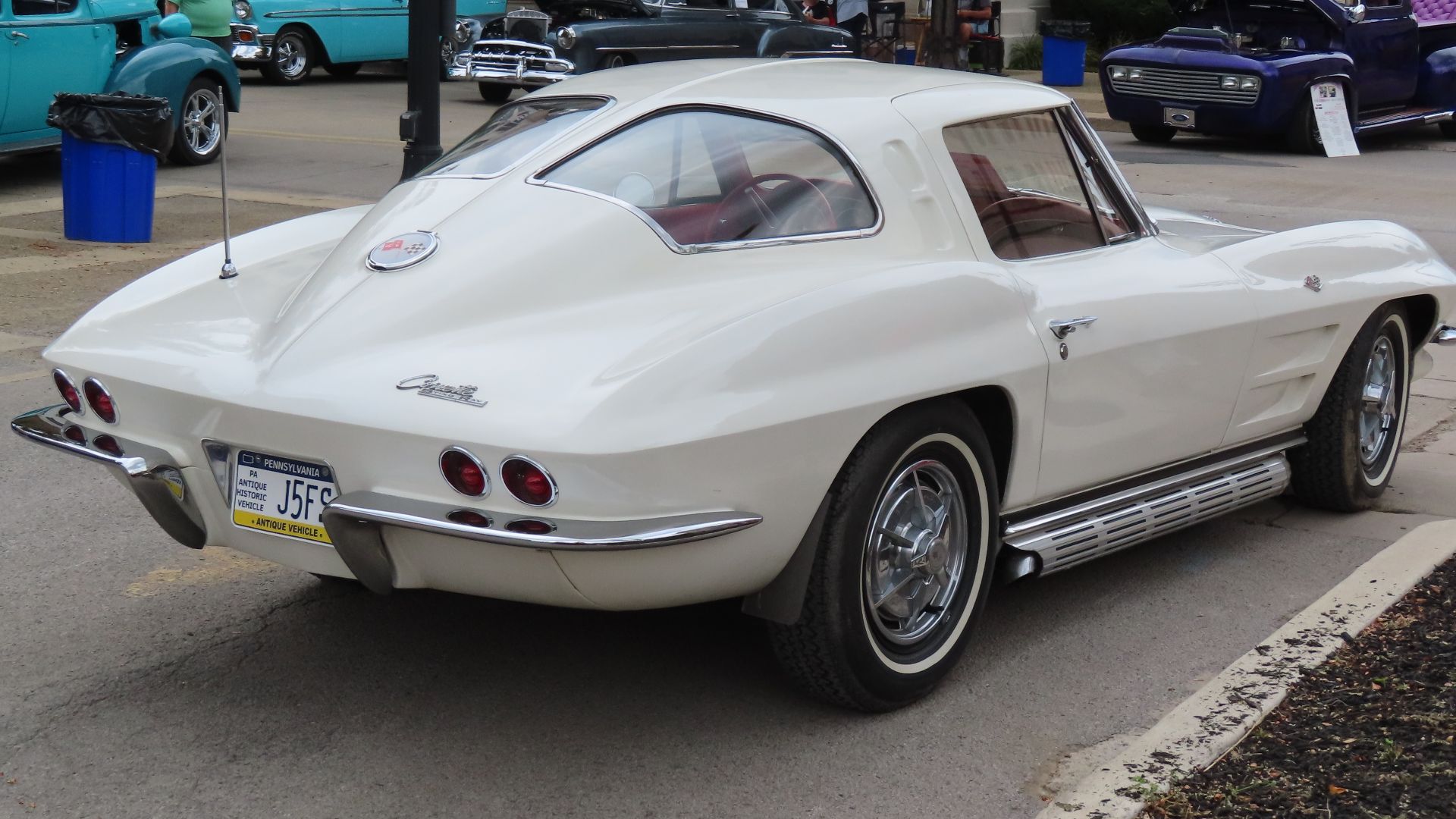 MercurySable99, Wikimedia Commons
MercurySable99, Wikimedia Commons
1963 Chrysler Turbine Car
Jet engine tech meets Detroit steel—that’s the 1963 Chrysler Turbine. Built for experimental runs, only 55 of these ever hit the road, and they all rocked taillights that looked like glowing afterburners. Deep-set circular red lenses sat in black housings, mimicking the jet theme front to back.
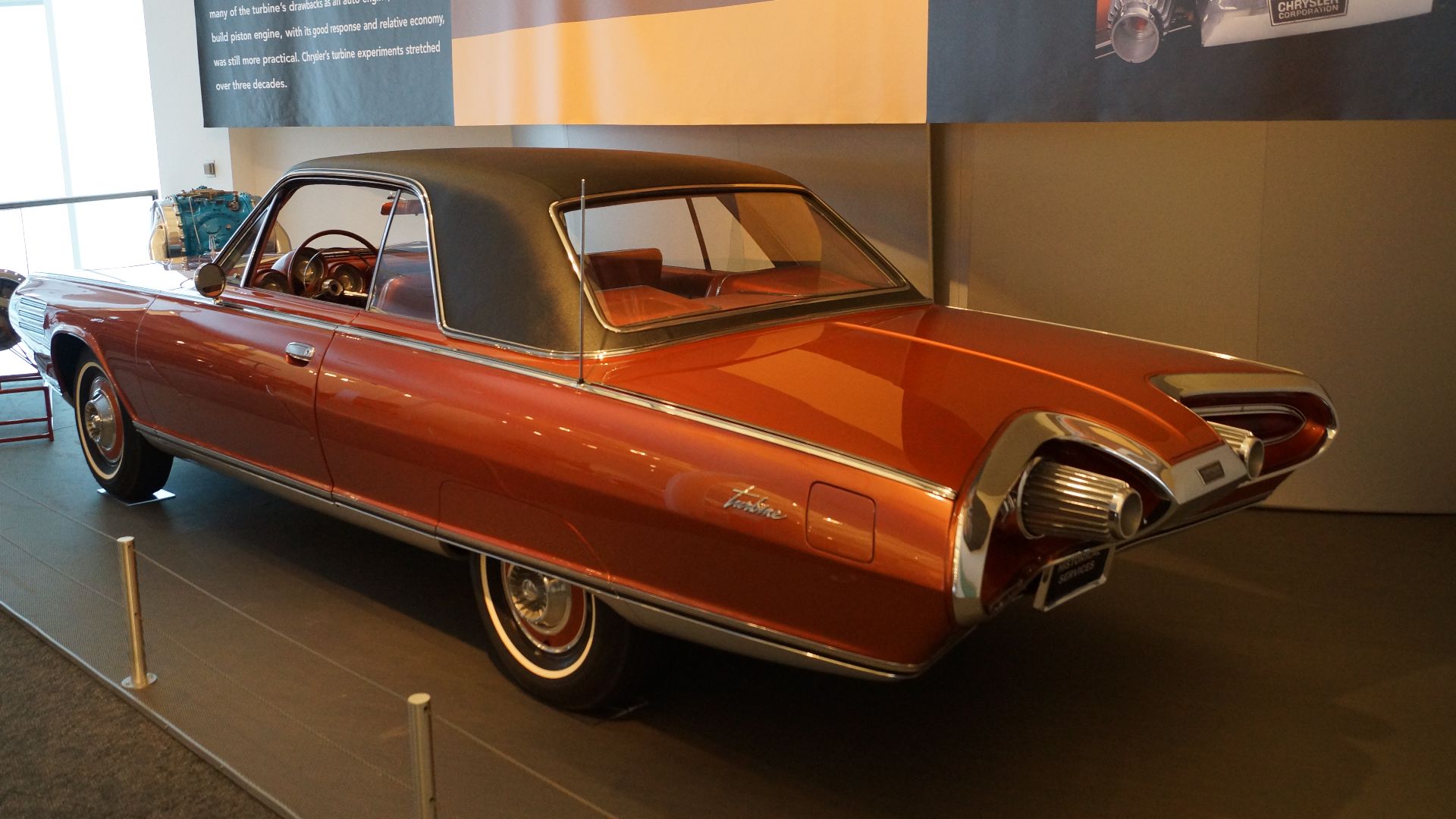 Greg Gjerdingen from Willmar, USA, Wikimedia Commons
Greg Gjerdingen from Willmar, USA, Wikimedia Commons
1965 Ford Mustang
Launch day, April 17, 1964—the pony car era began. But the Mustang’s triple-slit taillights? That was pure attitude. Arranged vertically and flanked with chrome bezels, they gave every exit a signature snarl. Turn signals on some models sequentially pulsed, a clever dance of motion.
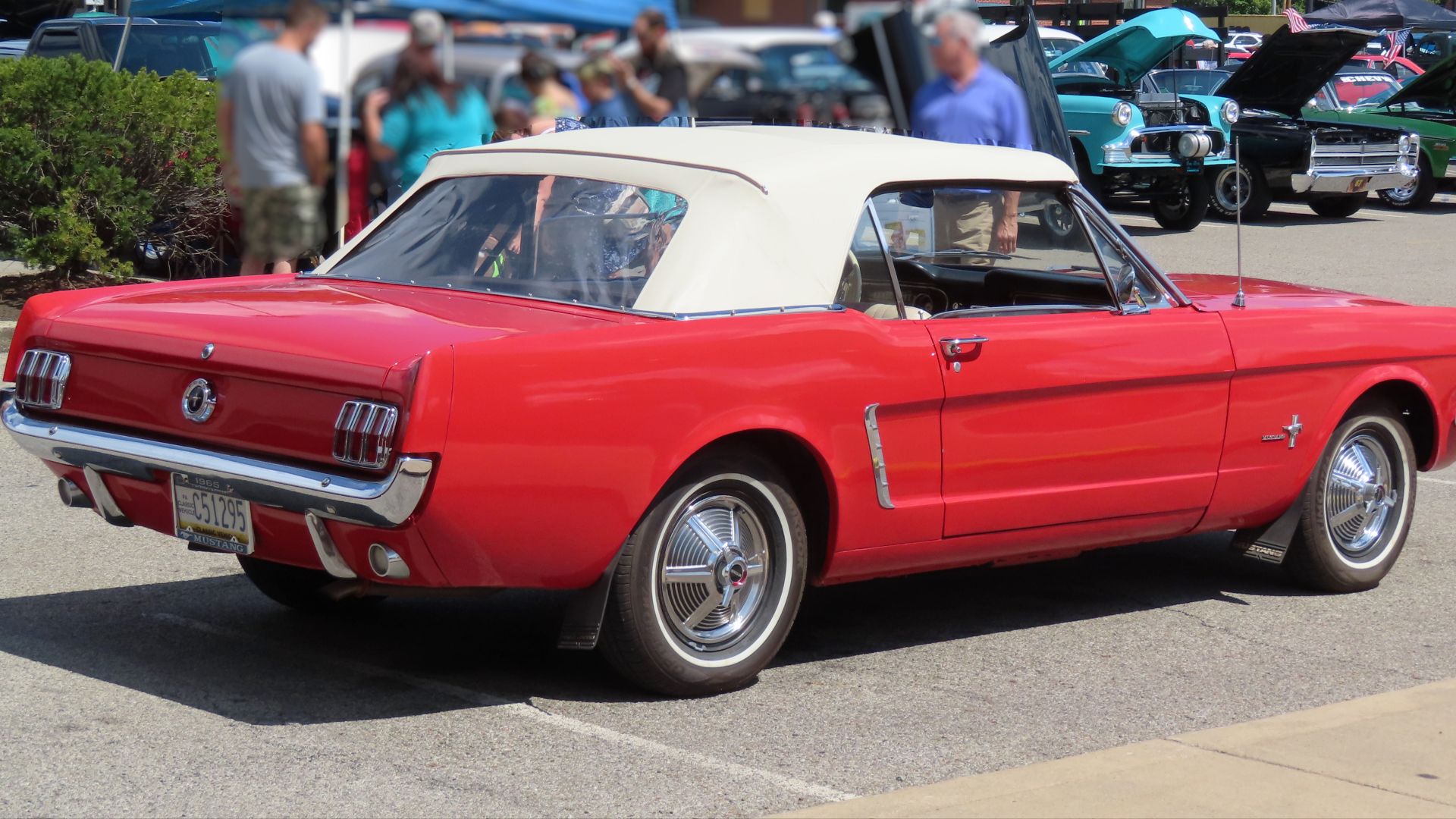 MercurySable99, Wikimedia Commons
MercurySable99, Wikimedia Commons
1967 Alfa Romeo 33 Stradale
Every inch of the 33 Stradale oozed elegance. Rested in smooth fiberglass were two clean circular taillights placed like jewels on a sculpture. Designed by Franco Scaglione, the car’s rear looked like its aerodynamic intent. Weight? Less than 1700 pounds. Price? Unobtainable.
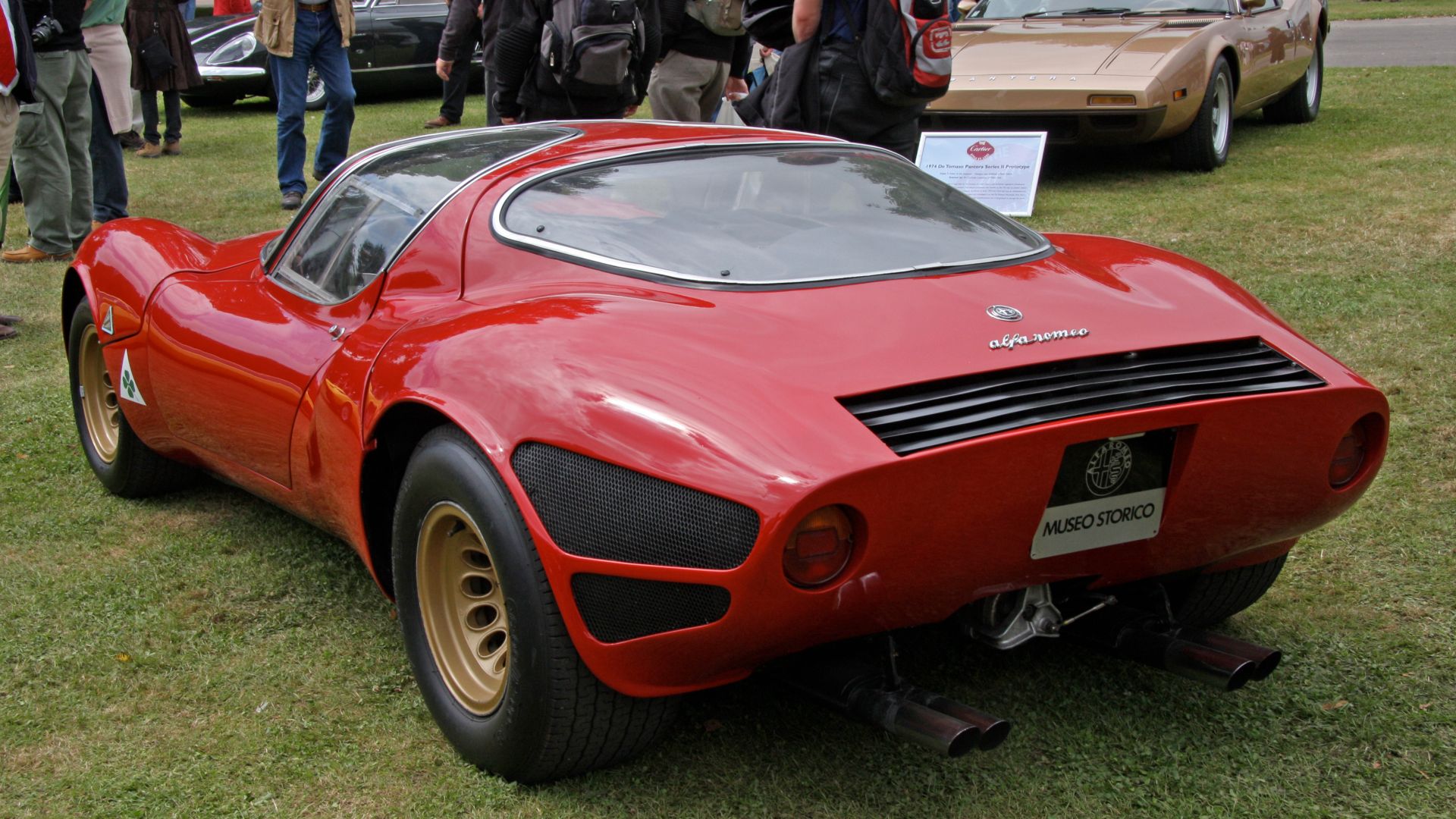 Brian Snelson from Hockley, Essex, England, Wikimedia Commons
Brian Snelson from Hockley, Essex, England, Wikimedia Commons
1969 Cadillac Eldorado
Luxury met geometry in the 69 Eldorado, where taillights were tall, thin, and stately. Positioned vertically within crisp bodylines, they appeared like red neon totems flanking the trunk. Cadillac toned down the previous decade’s drama but didn’t lose its edge. These lights framed the power-operated trunk with sophistication.
1970 Plymouth Superbird
Pop quiz: What car looks ready to take flight standing still? If you said the Superbird, you nailed it. Its rectangular taillights were simple, yet they balanced out the towering rear wing and sloping deck lid. NASCAR roots demanded an aerodynamic form, but Plymouth maintained the street version’s visual cohesion.
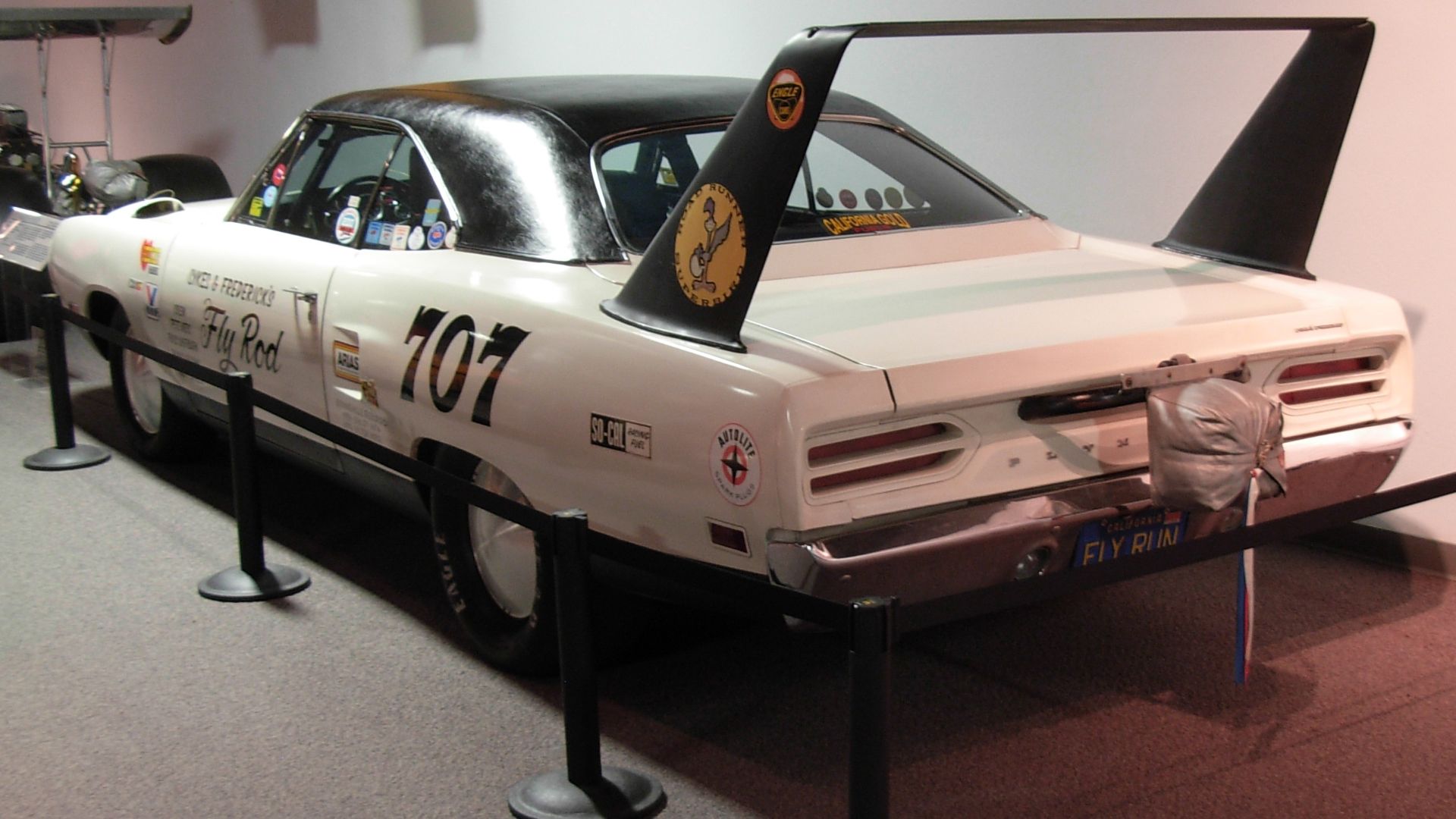 brewbooks from near Seattle, USA, Wikimedia Commons
brewbooks from near Seattle, USA, Wikimedia Commons
1974 Porsche 911 Turbo (930)
Porsche’s 930 Turbo introduced a massive rear spoiler that redefined the silhouette of sports cars. But look closely; underneath that tail, wide-set rectangular taillights are connected through a black panel, forming a cohesive rear width. Those lights looked clean, and they helped establish Porsche’s horizontal lighting language.
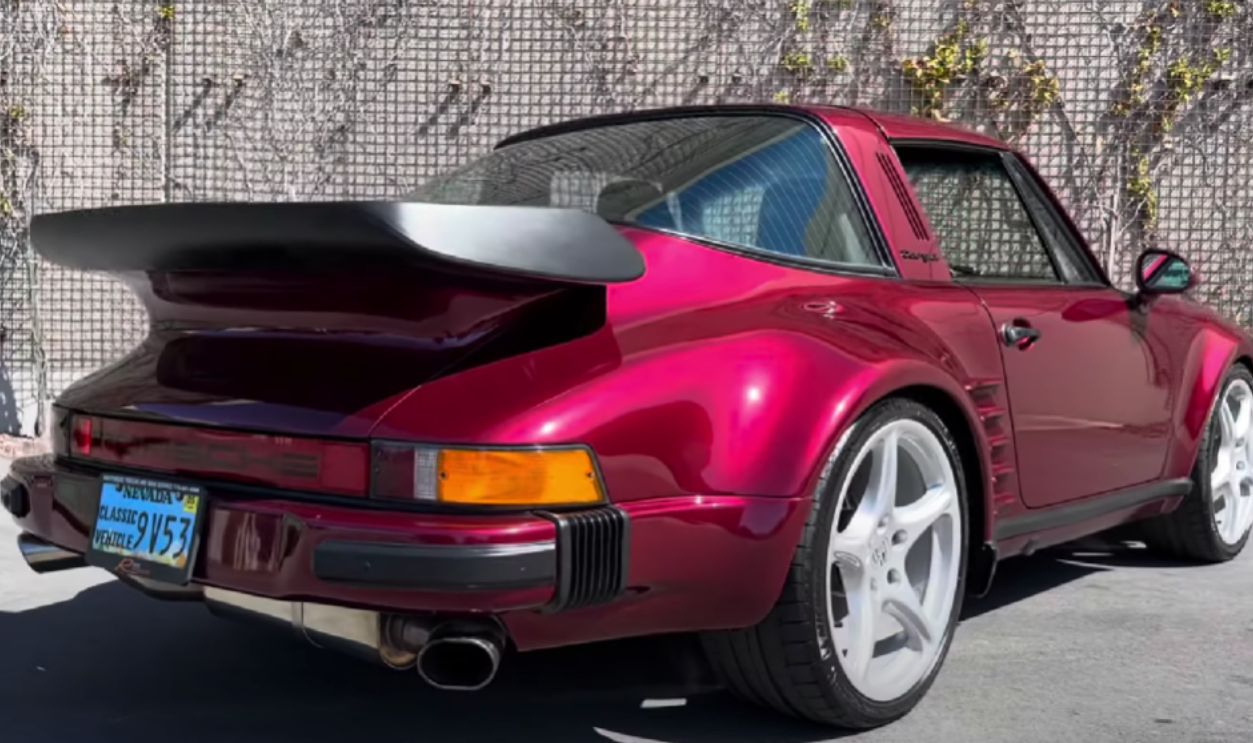 1974 Porsche 911 Targa Turbo AT DODI AUTO SALES by DODI AUTO SALES
1974 Porsche 911 Targa Turbo AT DODI AUTO SALES by DODI AUTO SALES
1984 Ferrari Testarossa
The Testarossa’s most radical move was a full-width, grille-covered taillight section that resembled a Venetian blind designed by Michelangelo. Ferrari created this in response to US regulations, and the effect was stunning. It widened the car visually and made the rear feel cohesive, futuristic, and aggressive.
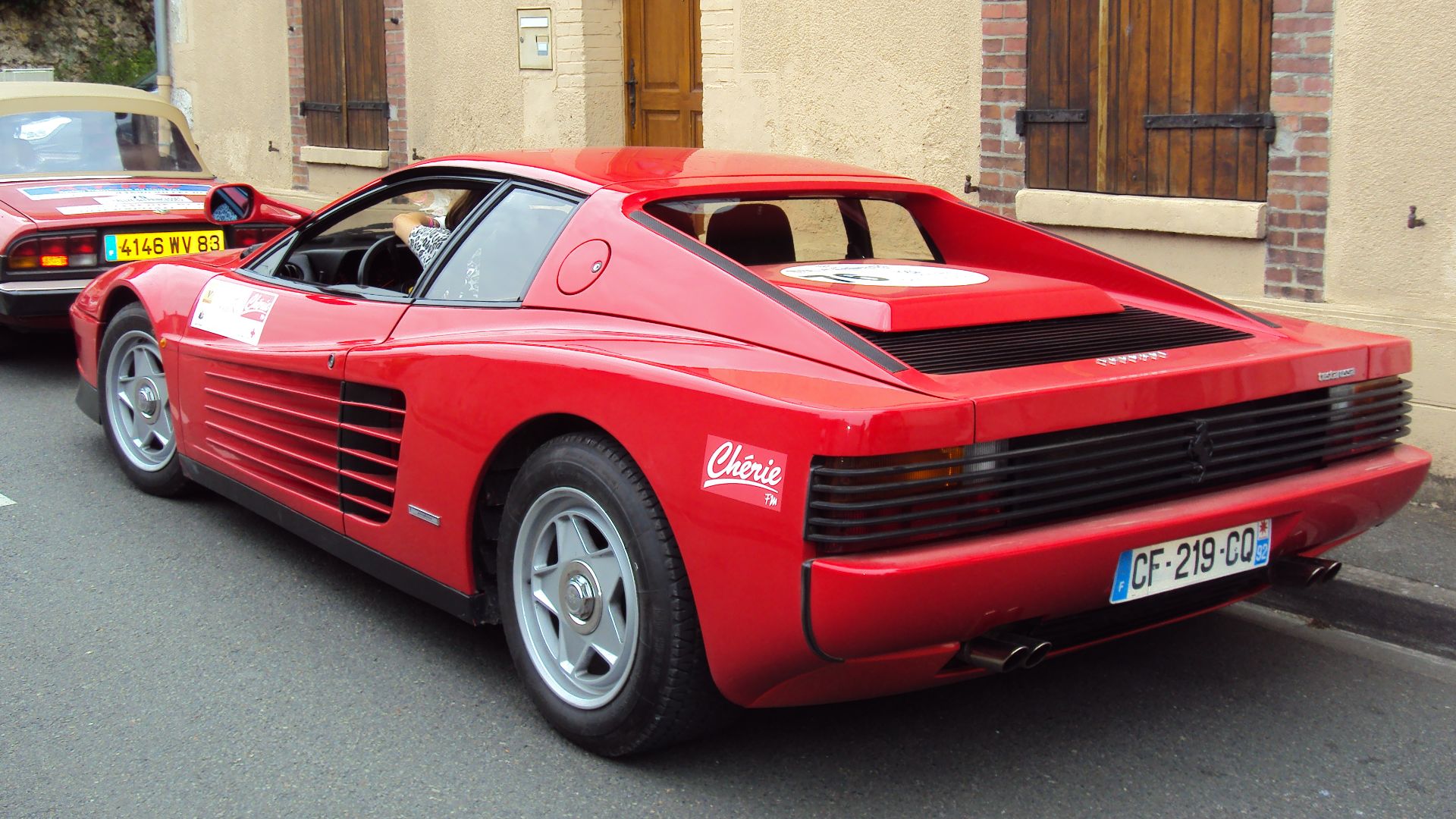 Blood Destructor, Wikimedia Commons
Blood Destructor, Wikimedia Commons
1985 Chevrolet Corvette C4
In this car, the C4 Corvette broke from its round-taillight past and went angular. Square lenses sat flush with a sloped rear deck, making the car look leaner and more mechanical. The effect? A car that looked engineered, not just styled. Chevrolet was chasing European flair, and it showed.
1987 Buick GNX
Blacked-out and brutal, the GNX meant business. Buick ditched chrome for sinister minimalism, and the taillights followed suit. Red clusters embedded within a black panel gave it a stealthy stare. In a decade of flash, the GNX went full noir. No frills, no curves—just hard lines and a deep growl.
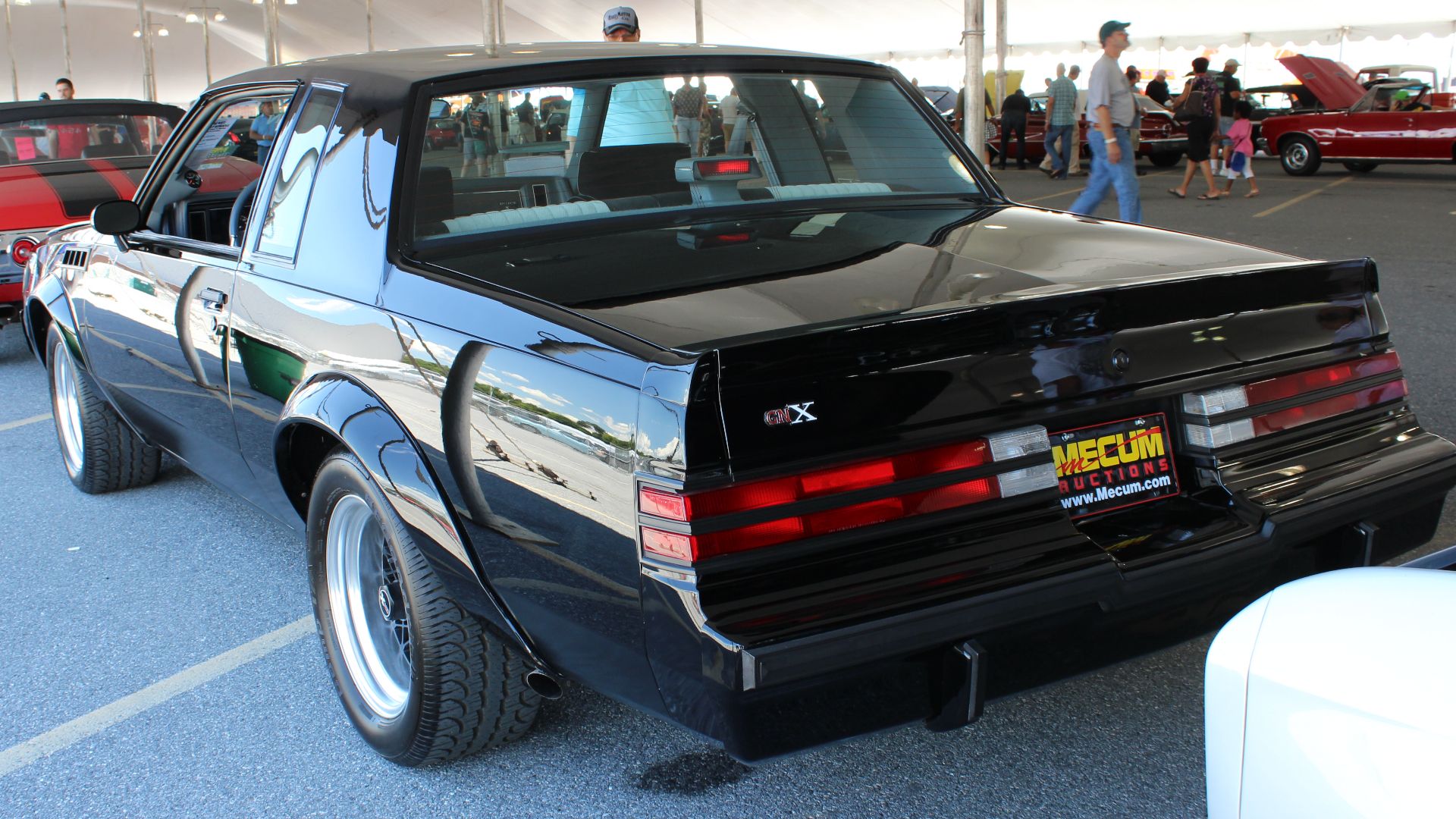 ilikewaffles11, Wikimedia Commons
ilikewaffles11, Wikimedia Commons
1990 Honda NSX
Innovation shaped the NSX from nose to tail. But its rear end? A masterstroke. Designers fitted a full-width red taillight bar, seamlessly flowing beneath a fixed wing. This was functional, aerodynamic, and endlessly sleek. Honda took cues from fighter jets, and you could tell when the rear lights lit up.
1995 Chevrolet Impala SS
If menace had a mailbox, the 1995 Impala SS would’ve delivered the envelope. Big-bodied and all-business, it featured smoked taillights embedded in its wide rear, framed by thick sheet metal. There were no gimmicks here—just dark glass and deep red lamps glowing with attitude.
1999 Nissan Skyline GT-R R34
The R34 GT-R’s quad-round taillights became the ultimate calling card for JDM enthusiasts worldwide. Each circle, perfectly symmetrical, pulsed with purpose when you hit the throttle. Even in Fast & Furious, that rear end stole scenes. Clean and unmistakably Skyline, it turned every night run into a cinema.
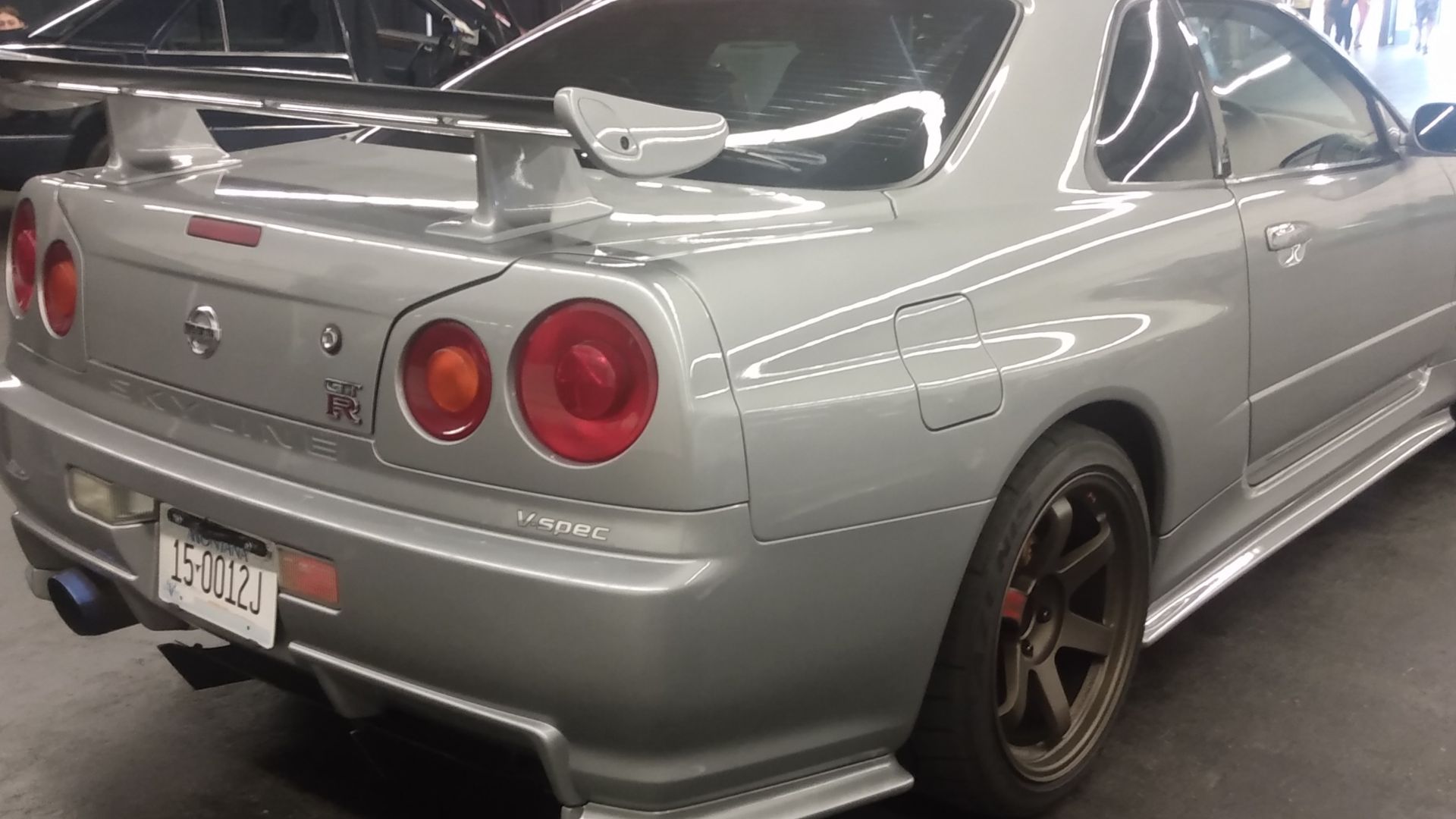 DestinationFearFan, Wikimedia Commons
DestinationFearFan, Wikimedia Commons
2002 BMW Z8
A love letter to the 507, the Z8’s rear was nostalgia-wrapped in carbon fiber cool. Slender horizontal taillights resting just under a sculpted deck lid gave it a minimalist edge. BMW knew the ‘less is more’ rule and doubled down. The setup looked like jewelry on polished steel.
2005 Ford GT
Reviving the GT40 wasn’t easy, but Ford nailed it—and then some. The taillights? Clean circular lenses set into thick shoulders, each ringed with function. Built-in air vents sat dead-center, cooling the beast while looking stunning. Watch a GT pass at dusk, and those twin lights flicker like afterburners.
2008 Lamborghini Reventon
Drama dialed to eleven. The Reventon’s taillights—sharp, Y-shaped LED clusters—looked like lightning bolts etched in obsidian. Lamborghini spaced the LEDs wide, tracing the angular bodywork like neon veins. Even parked, the Reventón’s rear looked alive, like it might blink and charge.
 No machine-readable author provided. Luc106 assumed (based on copyright claims)., Wikimedia Commons
No machine-readable author provided. Luc106 assumed (based on copyright claims)., Wikimedia Commons
2009 Aston Martin One-77
Rare and refined, the One-77’s taillights reflected its billion-dollar vibe. Slim, blade-like LEDs curled elegantly across the rear haunches to draw a perfect underline to its sculpted stance. Aston Martin played it quiet but classy, using delicate layering and chrome trims.
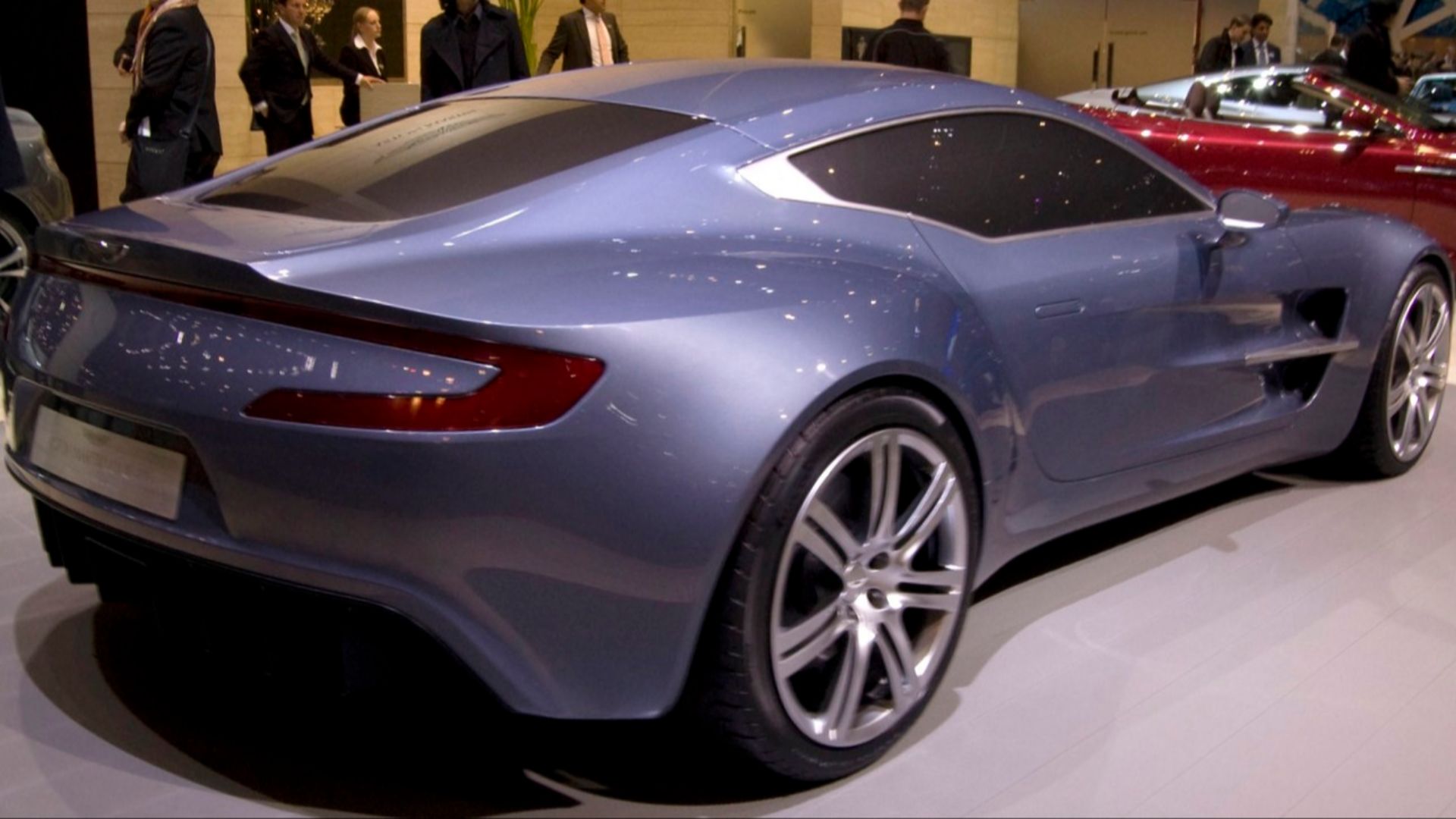 David Villarreal Fernández, Wikimedia Commons
David Villarreal Fernández, Wikimedia Commons
2010 Audi A7
Something new glided onto the streets in 2010: the Audi A7 with its sweeping LED turn signals. Sequential flow indicators traced each turn in a smooth rhythm. Audi didn’t invent the idea, but perfected it in execution. Want attention at a red light? This A7 gives it… and keeps it.
2011 McLaren MP4-12C
Sleekness had a name and a rear diffuser to match. The MP4-12C featured razor-thin LED taillights, so subtle they almost vanished during daylight. Positioned at the edge of active aero panels, they emphasized aerodynamic purity over showmanship. You saw more black mesh than lens, and that’s by design.
2012 Tesla Model S
Minimalism took the wheel when Tesla launched the Model S. Its rear end featured clean, horizontal LED elements with seamless integration into the liftgate. That red bar stretched across with perfect proportion, matching the car’s silhouette and EV ethos. Tesla skipped tradition and rewrote elegance.
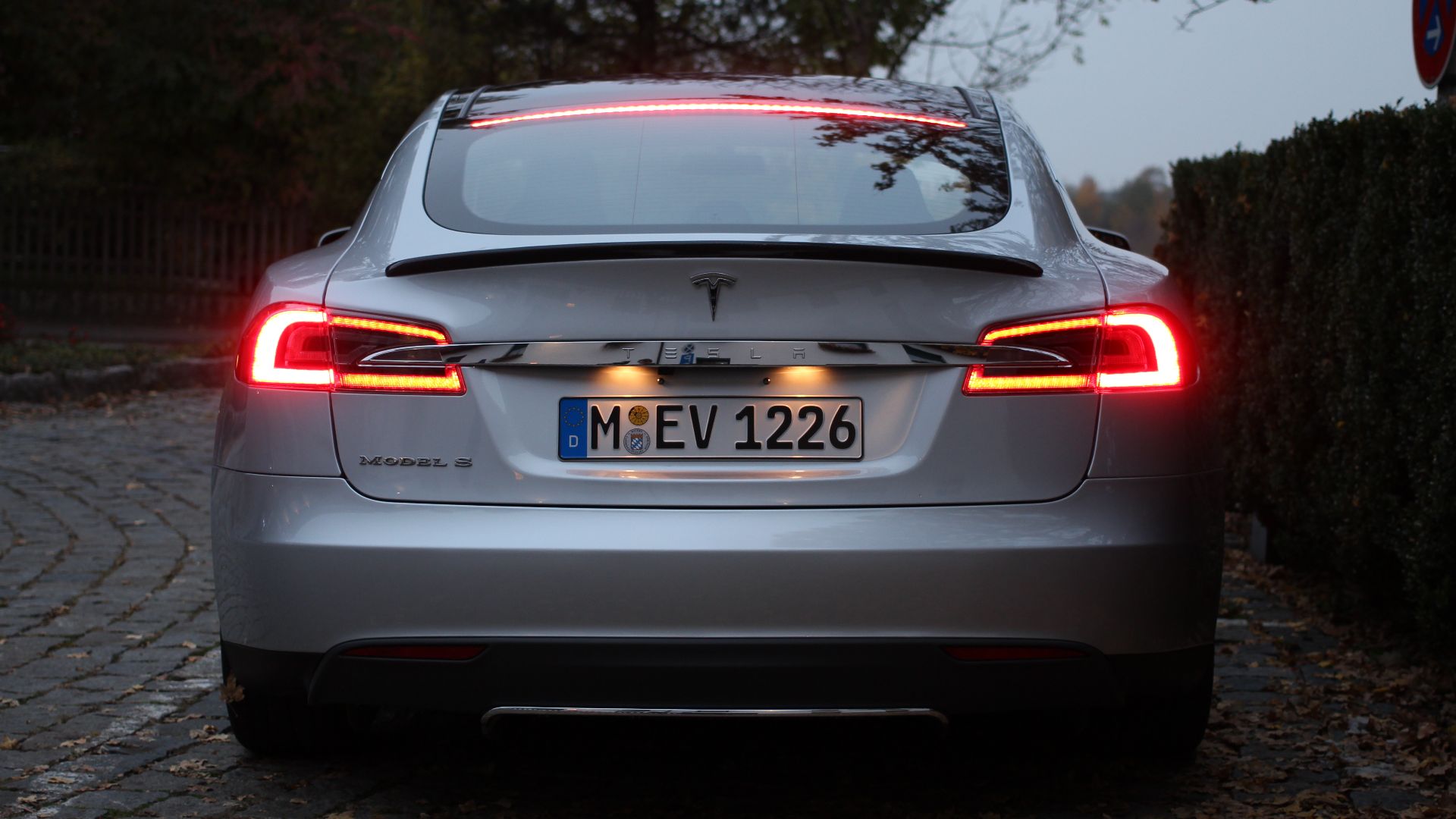 Maurizio Pesce from Milan, Italia, Wikimedia Commons
Maurizio Pesce from Milan, Italia, Wikimedia Commons
2013 Ferrari LaFerrari
Exotic energy. The LaFerrari’s rear brought the drama in tight doses, with two distinct circular taillights embedded in bulging carbon-fiber hips. They resembled jet intakes more than lamps—intentional, of course. Ferrari built this to appear fast even when standing still, and those lights anchored the illusion.
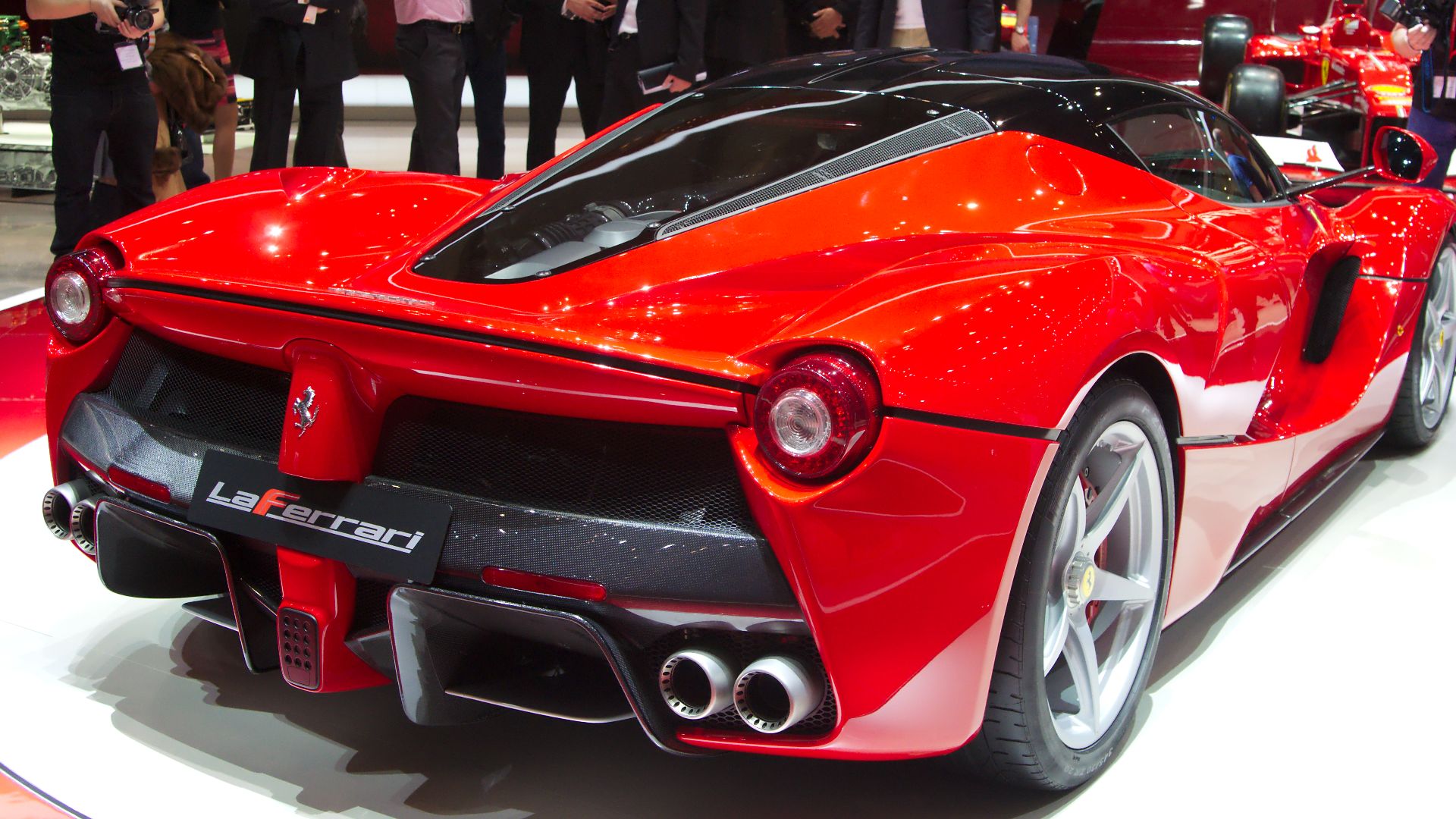 Clément Bucco-Lechat, Wikimedia Commons
Clément Bucco-Lechat, Wikimedia Commons
2014 BMW i8
This BMW flaunted its eco-warrior badge proudly, but those rear U-shaped LED lights were pure cyberpunk. Flowing from sharp fenders, the taillights created an illusion of floating surfaces, as if levitating above the diffuser. BMW used transparency, layering, and curves to design a “tail halo”.
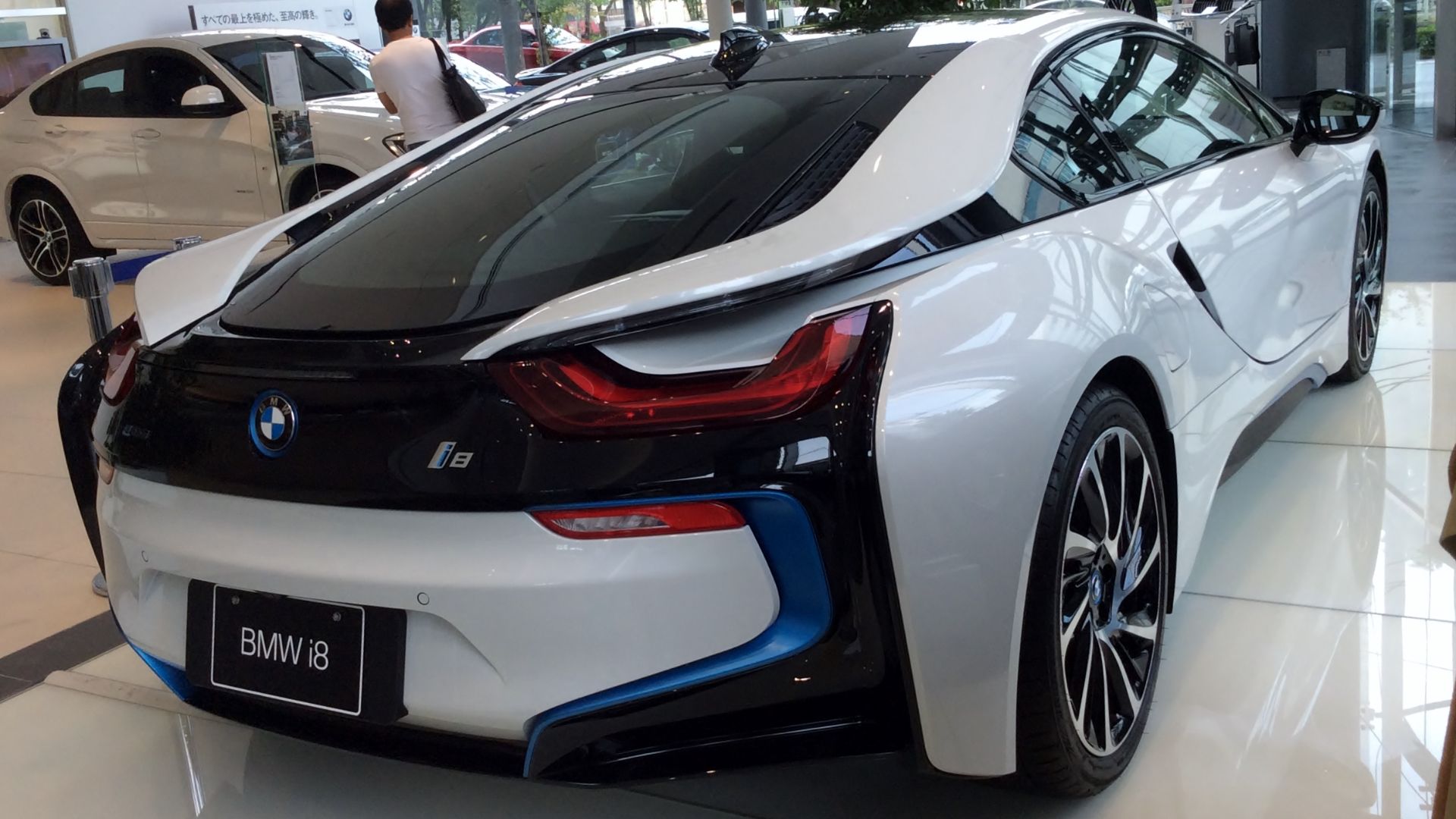 Tokumeigakarinoaoshima, Wikimedia Commons
Tokumeigakarinoaoshima, Wikimedia Commons
2015 Lexus RC F
Sharp edges. Sharp attitude. The Lexus RC F came in swinging with L-shaped LED taillights that sliced through the night. That angular motif traces down into the rear bumper, emphasizing the coupe’s wide stance. Lexus also utilized layered LEDs to create visual depth.
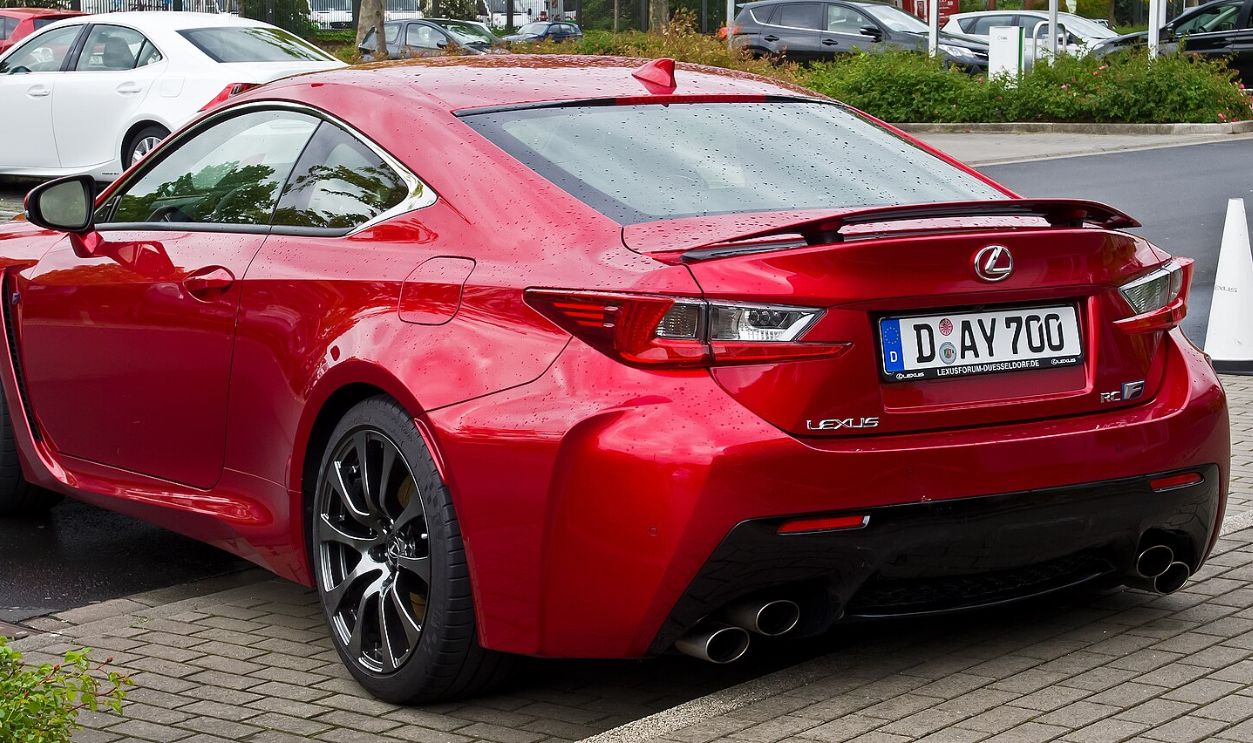 M 93, CC BY-SA 3.0, Wikimedia Commons
M 93, CC BY-SA 3.0, Wikimedia Commons
2016 Bugatti Chiron
Supercars tend to roar from the front. But the Bugatti Chiron intimidates from the rear. One continuous LED strip stretches across its back. It’s clean, menacing, and unmistakably Bugatti. Designed to highlight the car’s insane width—over 80 inches—it visually anchors one of the world’s fastest land missiles.
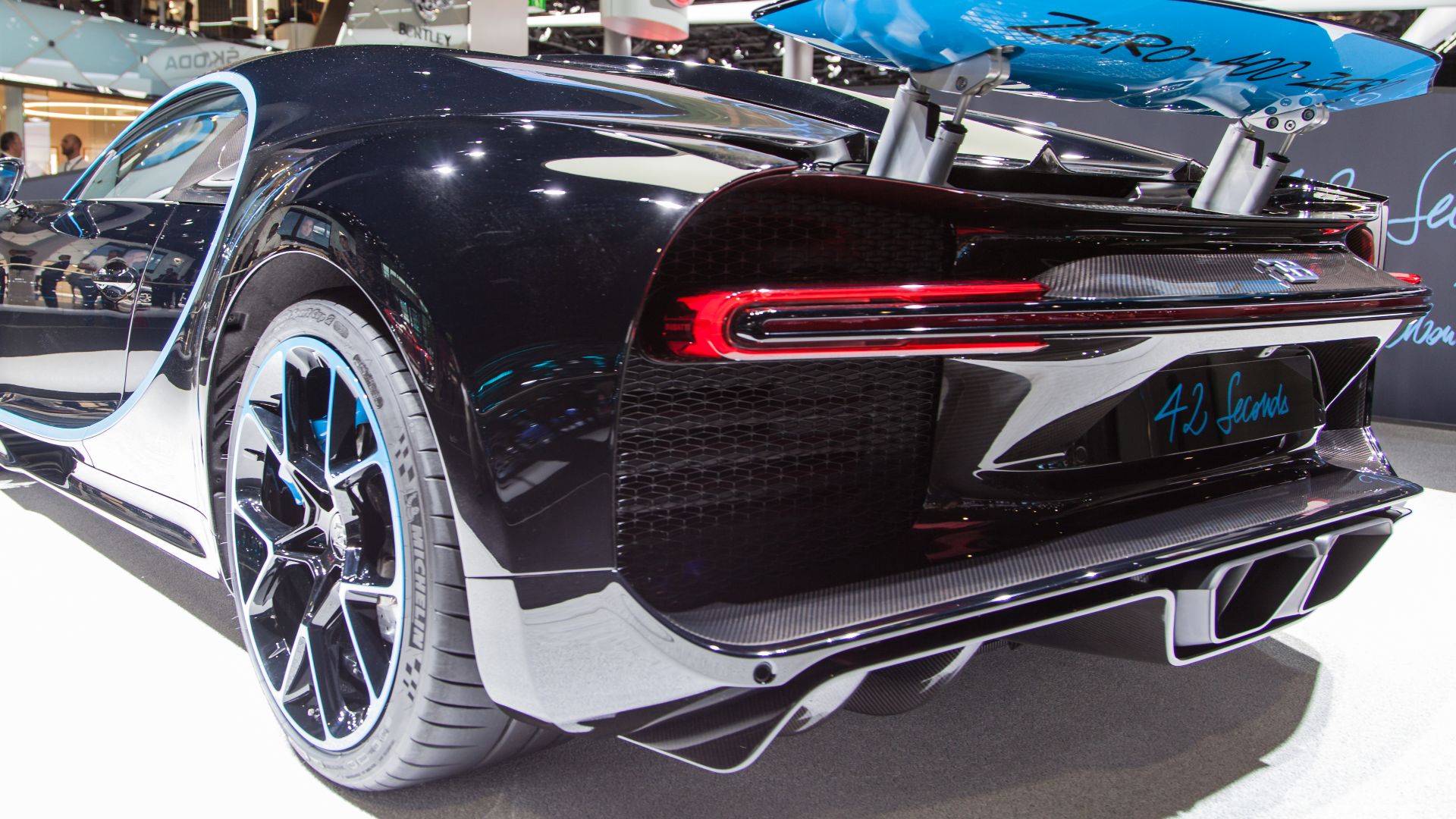 Alexander Migl, Wikimedia Commons
Alexander Migl, Wikimedia Commons
Koenigsegg Regera
On the Regera, even the taillights work overtime. Integrated directly into the movable rear wing, these LEDs pull double duty as brake lights and are aerodynamic genius. When the wing deploys, the lights move with it and function, meeting flight. As the active aero rises, your world flashes red before it disappears.
2018 Aston Martin Vantage
Sinuous. That’s the word. The 2018 Vantage reinvented Aston’s rear signature with a sinuous LED strip that carved its way across the car’s tail. It didn’t blink. It glowed—smooth and uninterrupted. Framed by sculpted hips and framed diffusers, the lighting traces the silhouette like eyeliner on a supermodel.
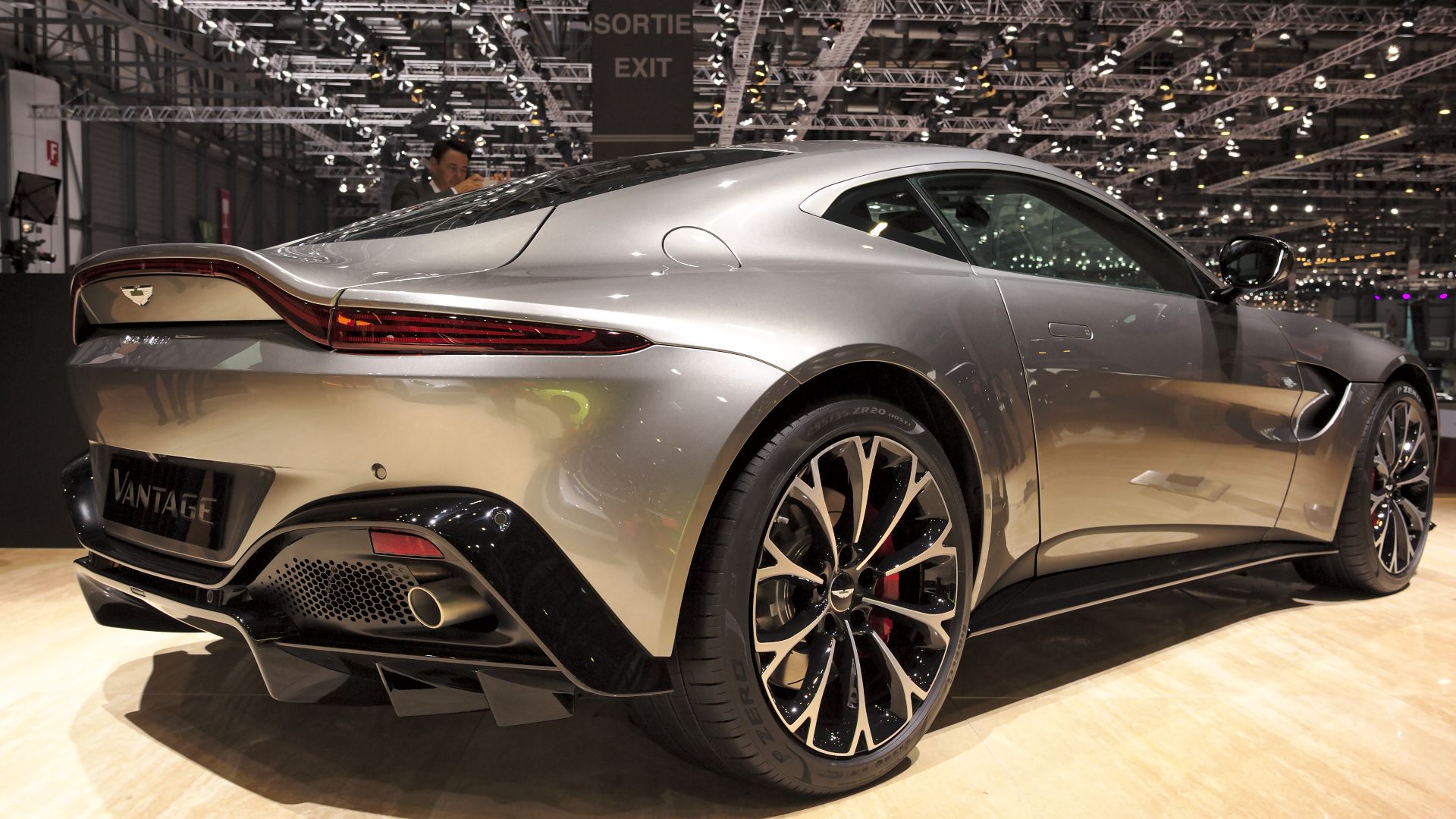 Alexander Migl, Wikimedia Commons
Alexander Migl, Wikimedia Commons
2019 Porsche Taycan
The electric age didn’t dull Porsche’s edge; it sharpened it. This ride carried over a light bar concept but boosted it into an illuminated spine. Black trim framed the red beam, giving the rear a futuristic aesthetic. With no exhausts to speak of, this light bar became the exclamation point.
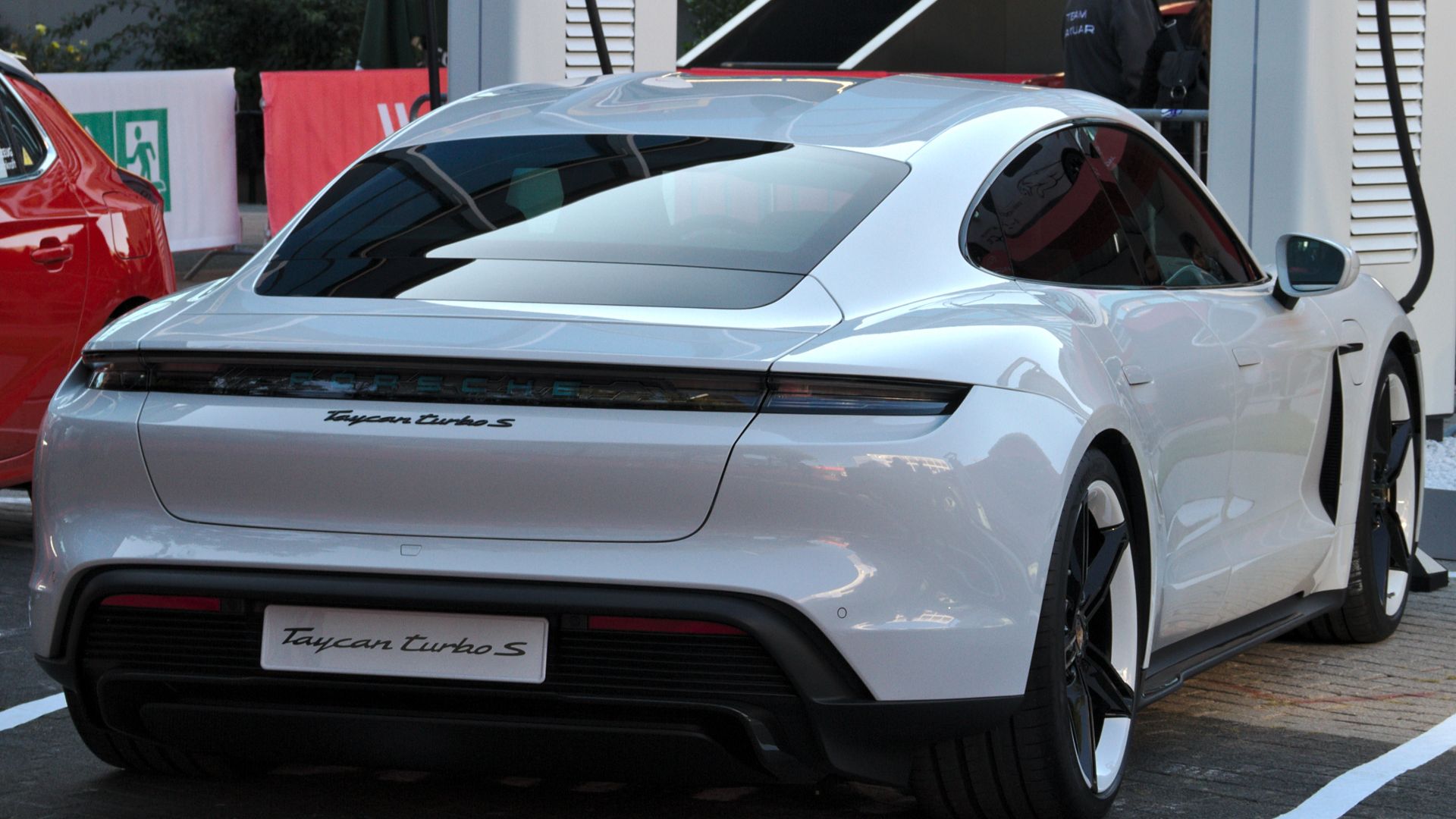 Alexander Migl, Wikimedia Commons
Alexander Migl, Wikimedia Commons
2020 Hyundai Sonata
Wait, Hyundai did what? Yep—the 2020 Sonata turned heads with H-shaped LED taillights that stretched inward to form a dramatic arc across the trunk. Light guides crept up the rear quarters, fading gently into the roofline. People noticed a light sculpture that happened to get 38 mpg.
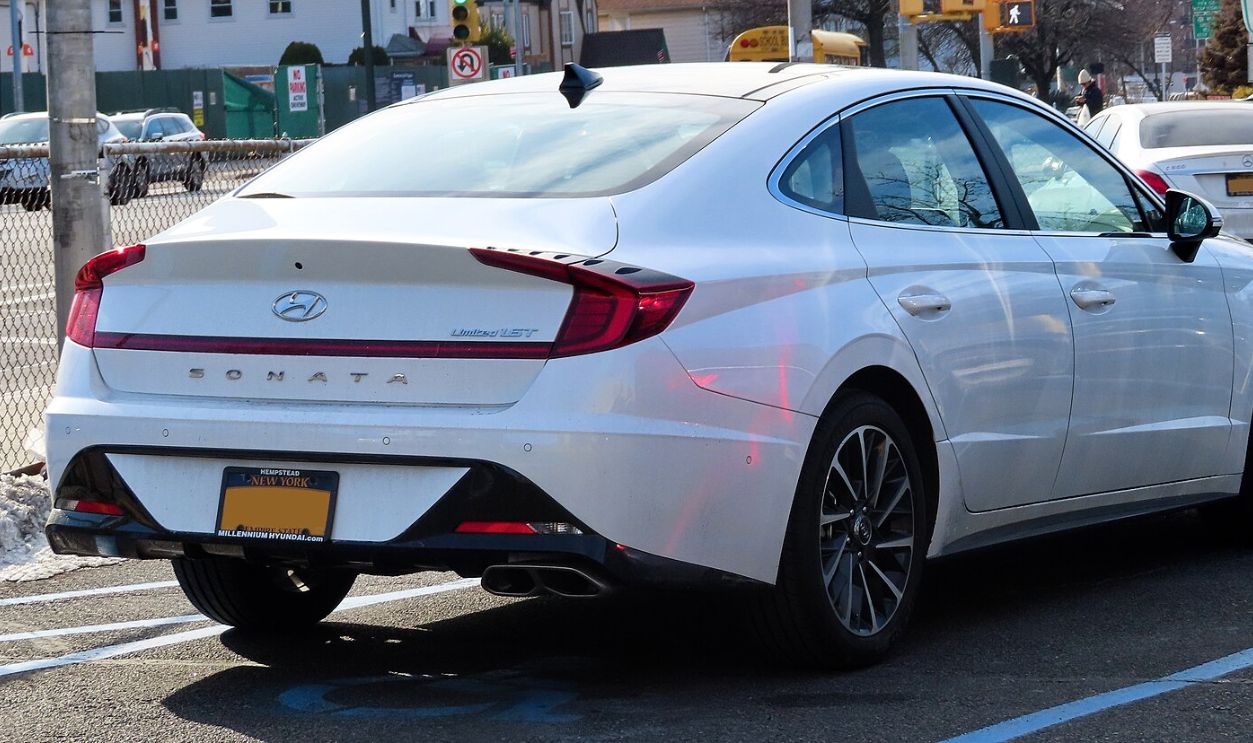 Kevauto, CC BY-SA 4.0, Wikimedia Commons
Kevauto, CC BY-SA 4.0, Wikimedia Commons
2020 Toyota C-HR
Chunky, chiseled, and totally confident, the Toyota C-HR marched into crossover territory with boomerang-style taillights that jutted outward like wings. Protruding from the rear fenders, they created a layered, aggressive profile, unlike anything in its class. Toyota designers went full anime here.
2020 Ford Mustang Mach-E
Electric soul, muscle DNA. The Mach-E may be new-school under the hood, but its rear design paid homage to a legend. Those tri-bar taillights? Still here. But now, they’re wrapped in a smoked, tech-forward lens that screams neo-Mustang. Each LED bar animates during start-up and blink sequences.
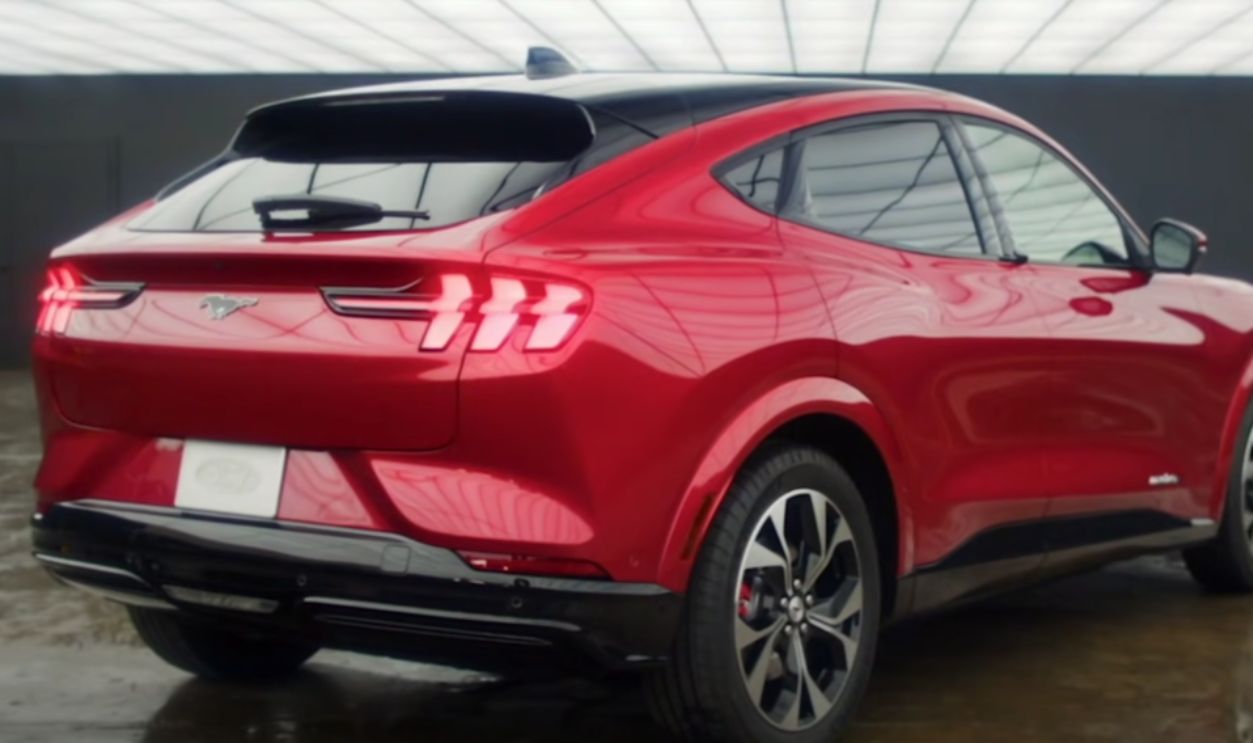 ALL-NEW Ford Mustang EV 2020 - see what the famous muscle car has turned into! by carwow
ALL-NEW Ford Mustang EV 2020 - see what the famous muscle car has turned into! by carwow
2021 Rivian R1T
Truck? Sure. But the Rivian R1T’s taillight design could moonlight in a sci-fi flick. A solid red beam wraps around the tailgate to float above a sculpted bumper like a laser. It functions as both a taillight and a brand statement. Unlike any pickup on the road, this light bar is a luminous authority.
2021 Hyundai Ioniq 5
Back to the future, but pixel edition. The Ioniq 5’s squared LED elements nod to 8-bit aesthetics, with a glowing rear bar that spans the tailgate. This car is retro and digital. It is also bold enough to make sci-fi jealous. Who knew geometry could flex?
 DieselFordMondeo, Wikimedia Commons
DieselFordMondeo, Wikimedia Commons
2022 Mercedes-Benz EQS
Prepare for opulence on the edge of orbit. Here, the rear light setup dazzles with 3D helix-shaped LED clusters enclosed in crystalline housings. At night, they sparkle, and you’ll feel like the taillights are speaking in Morse code: sophisticated, secretive, and hypnotic.
 Randolph1981, Wikimedia Commons
Randolph1981, Wikimedia Commons
2022 Kia EV6
Bend the rules, light the way. In 2022, Kia came in swinging with a taillight that bent across the hatch. Designers curved the light blade upward toward the fenders to give the rear an unexpected architectural twist. The LED signature frames the car’s stance.
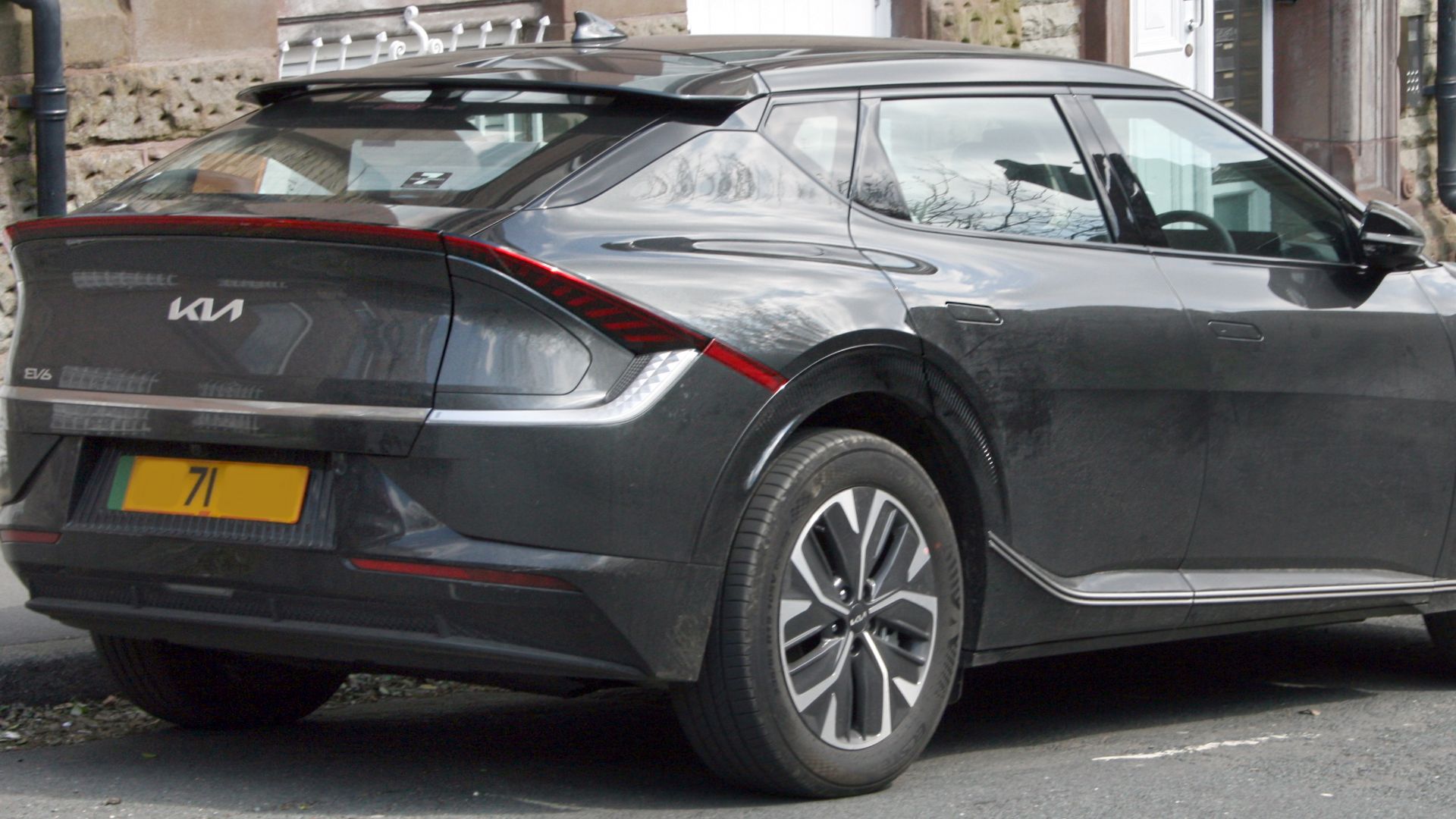 DieselFordMondeo, Wikimedia Commons
DieselFordMondeo, Wikimedia Commons
2022 Lucid Air
A whisper-thin red light bar floats across the entire width, recessed into the bodywork so clean it could be lab equipment. This is lighting for the minimalists, no shapes, no distractions, just a smooth blade of light. Lucid designed it with millimeter-level precision to complement airflow and aesthetics.
2022 Cadillac Lyriq
Dramatic vertical light blades flank the Lyriq’s rear like crystal chandeliers dipped in innovation. Cadillac’s electric debut delivers a taillight show every time you unlock it: sequenced LEDs dance, breathe, and dazzle. Luxury lighting? This one’s haute couture.
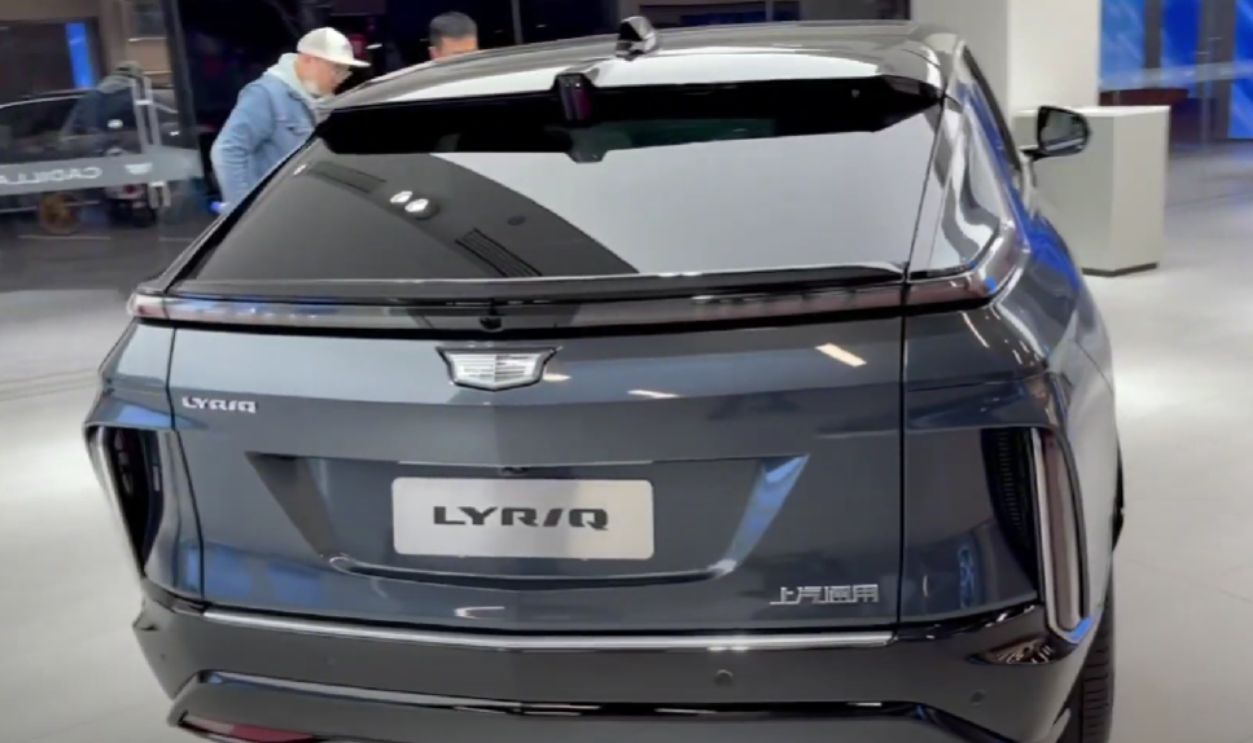 ALL NEW 2022 Cadillac Lyriq EV - Exterior And Interior by AutoWorld
ALL NEW 2022 Cadillac Lyriq EV - Exterior And Interior by AutoWorld



